Solidarity in action: How racialised LGBTI activists are leading the way
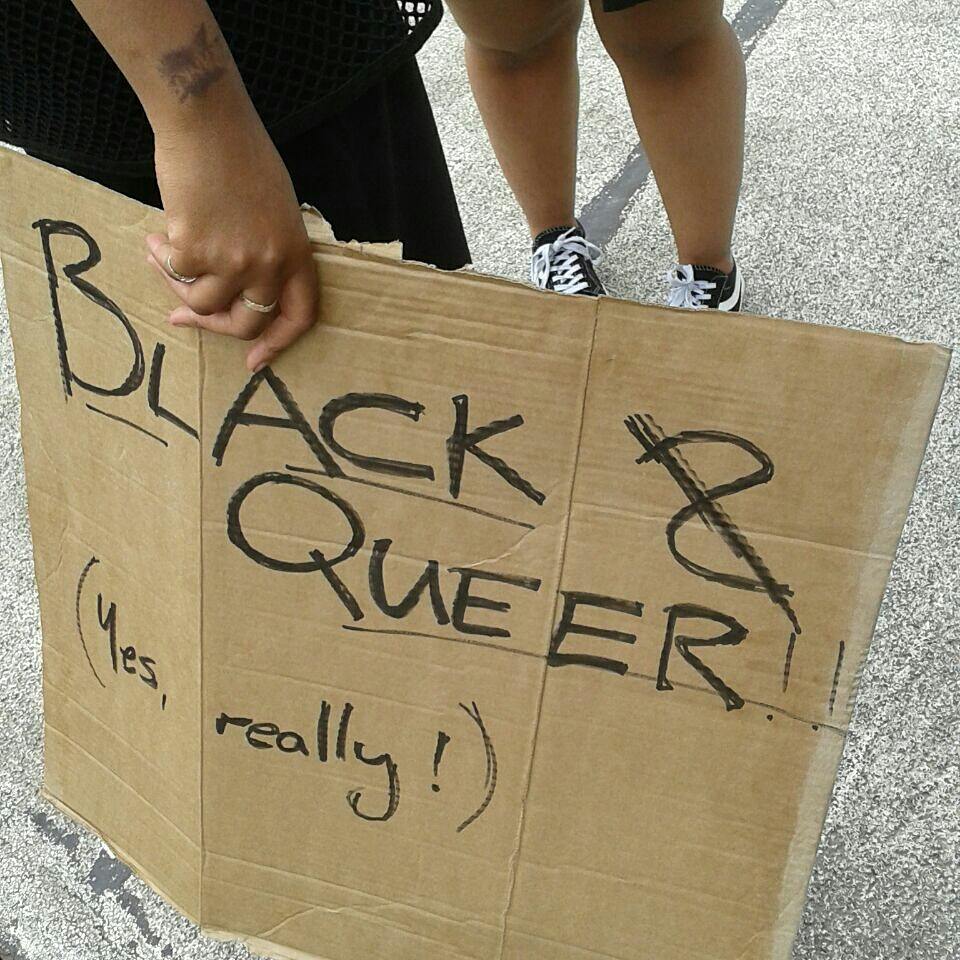
Across Europe, racialised LGBTI activists are redefining solidarity, not as a token gesture, but as a lifeline, a political act, and a practice of care. From fighting deportations to challenging power structures, their work offers a vision for a more just and transformative LGBTI movement.
“Solidarity is a technology of tenderness. It’s love. It’s protection. It’s grace. First to ourselves. Because we, as human beings, we always share what we are filled with.” (Faris Cuchi Gezahegn, Afro Rainbow Austria and House of Guramayle)
“To be radical, [solidarity as politics of affinity] has to be structural. That means dismantling colonisation, racism, LGBTI-phobia. It’s about redistributing discourse, resources, power.”(Pancho Godoy Vega, Colectivo Migrantes Transgresorxs)
With this new blog series, we’re sharing insights from the work of LGBTI organisations tackling injustice, racism, and the unique challenges faced by racialised LGBTI communities in Europe. We hope their stories and practices will inspire and resonate. We believe that solutions and approaches that include a few will pave the way and point to the solutions for many. You can read the previous blog in the series here.
For this blog, we’re shifting our focus to solidarity. What does it mean to racialised LGBTI communities? How is it understood, lived, and practised? And what would it mean for the broader LGBTI movement to engage in solidarity in a truly radical and transformative way?
To explore this, we spoke with three queer racialised groups: Queerstion Media (Sweden), Afro Rainbow Austria, and Migrantes Transgresorxs (Spain). Their stories are both deeply personal yet undeniably political.
Solidarity as a Lifeline
“I am a product of solidarity,” says Purity K Tumukwasibwe, Executive Director of Queerstion Media. “I became an activist by default. I was advocating for myself because otherwise my rights were just completely taken away from me.” From surviving police violence in Uganda and Kenya to being supported by a network of queer activists and allies in Europe, Purity’s journey is an example of how solidarity can be a lifeline, a practice that literally saves lives.
She shared a recent story of advocating for a fellow trans refugee in Sweden who was facing deportation to Uganda. “Everybody said that if the migration services decided on that, then it was over. But we said, ‘Let’s try’. I was so impressed by how everybody came on board.” Through a petition, media outreach, and institutional pressure, united in solidarity, they changed the outcome. The woman was granted residence in Sweden and permitted to stay. “When I see these members we support, who we come together for, I feel like I have contributed to a better world,” says Purity.
A Technology of Tenderness
For Faris Cuchi Gezahegn, member of Afro Rainbow Austria and co-founder of House of Guramayle, solidarity is both a political act and a spiritual practice. “To exist in this world as the person that I am, I am the manifestation of solidarity,” they say. Faris speaks of the collective effort that ensured their survival as a queer Ethiopian activist forced to flee, and how those acts of support were never transactional, but rooted in mutual care.
For Faris, solidarity isn’t about identity politics or rigid definitions. “It’s a technology of tenderness,” they explain. “It’s love. It’s protection. It’s grace. First to ourselves. Because we, as human beings. We always share what we are filled with.”
Yet, Faris also sees an urgent need for transformation within the LGBTI movement itself. “We harm one another. We are often encircled by the violence projected onto us, and we replicate it – in our accountability practices, in our scarcity mindsets, in how we treat one another.” Their call is for radical healing: to resist punitive impulses and lead with softness, honesty, and vulnerability.
Beyond Solidarity Towards Structural Change
The collective Migrantes Transgresorxs challenge the word ‘solidarity’. “We prefer to talk about the politics of affinity,” says Alex Aguirre Sánchez. “Solidarity carries a violent historical weight. It comes from religious charity, and religion has been violent for us.”
Instead, they emphasise ancestral bonds and community-to-community alliances. “We stay together, and together we are stronger,” says Kimy/Leticia Rojas. “It’s about sharing food, music, lived experience, and ancestral knowledge.”
Pancho Godoy Vega adds: “To be radical, it has to be structural. That means dismantling colonisation, racism, LGBTI-phobia. It’s about redistributing discourse, resources, power.” The group, formed in Madrid in 2009, has always intertwined the personal and political – fighting for trans migrants, critiquing whiteness in LGBTI spaces, building alliances from the bottom up.
All the activists featured in today’s blog share this in common: they call for a solidarity that is not superficial or symbolic, but material, embodied and rooted in justice. It means funding grassroots work. Sharing platforms. Redistributing power. Above all, it means healing.
As Purity puts it: “There is always going to be two sides of that coin, those with resources, and those at the margins shouting that we are struggling. Bridging that gap means planning together. It means putting grassroots like ours on the agenda.”
Freedom to Protest Is Under Attack – Why It Matters for Everyone

When states suppress public protests, they don’t just target activists, they erode the rights of all citizens. The latest crackdowns in Hungary, Turkey, and beyond show why defending freedom of assembly is more urgent than ever.
On 8 March, people took to the streets to mark International Women’s Day, but their right to march was actively suppressed in many places. From Kazakhstan to Turkey and Azerbaijan, authorities used intimidation, force, and legal threats to prevent women from gathering, exposing a broader pattern of restrictions on civil society. Meanwhile, in Hungary, the government has escalated its efforts to suppress freedom of assembly, passing a law that explicitly bans Pride marches and introduces surveillance measures to deter participation.
Crackdowns on feminist and LGBTI protests
Ahead of Women’s Day, Kazakhstan authorities detained LBT activists from Feminita, using penal and administrative tactics to suppress their activism. In Turkey, nearly 200 people were detained in Istanbul alone, with police blocking demonstrations across multiple cities on the 8th. Among those detained was a trans woman, underscoring how trans activists are often specifically targeted. In Azerbaijan, feminist activist Rauf Heydarov was sentenced to 30 days of detention after attempting to display a poster on 8 March, with fabricated charges used to justify their arrest. These cases illustrate how states use arbitrary detentions and legal mechanisms to intimidate activists and restrict their right to assemble and protest.
Hungary: From threats to an outright ban on Pride
In Hungary, restrictions on freedom of assembly have intensified dramatically. What started as a “child protection” law—banning the “depiction or promotion” of homosexuality to minors and widely condemned by EU leaders, the European Commission, and the Council of Europe as violating international human rights standards—has now escalated into a nationwide ban on Pride marches. The new law not only criminalises these events but also permits the use of facial recognition technology to track and penalise participants. Despite this, the Budapest Pride organisers remain committed to marching, demonstrating the resilience of the movement in the face of increasing authoritarianism.
A key indicator of democratic health
These events in Hungary, Turkey, Kazakhstan, and Azerbaijan are not isolated incidents. They reflect a broader trend in which governments seek to silence peaceful and legitimate dissent by restricting public demonstrations, targeting women’s rights and LGBTI activists, and using legal measures to suppress fundamental rights. The ability to protest is a key indicator of democratic health. When states criminalise peaceful assembly, they erode not just rights for LGBTI people and women, but the broader foundation of civil liberties for all.
As these threats grow, the international response must be clear. Governments, the EU, and international institutions must hold states accountable for these violations and stand in firm defence of the right to protest. Freedom of assembly is not just an LGBTI or feminist issue; it is central to human rights and democracy. When one group’s right to gather is restricted, the ability of all people to organise and demand change is at risk.
The human right to assemble and protest must be protected, defended, and upheld.
Hungary’s Parliament Passes Law Banning Pride
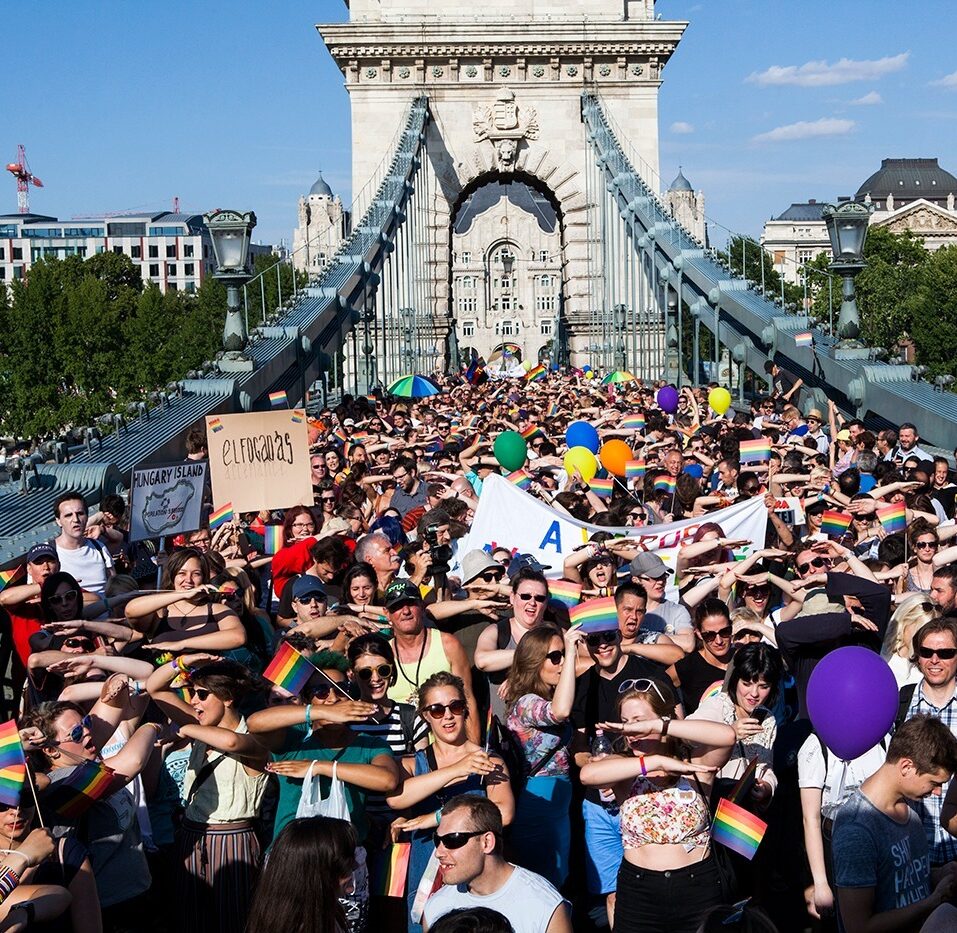
In an attack on freedom of assembly, Hungary’s Parliament has passed a controversial law criminalising Pride marches and allowing the use of facial recognition technology to target participants.
In a deeply troubling development, Hungary’s Parliament has passed a law banning Pride marches across the country. The law was fast-tracked through Parliament in just one day, with no consultation or debate, marking a significant erosion of freedom of assembly and human rights in Hungary.
The newly passed legislation expands Hungary’s already controversial “child protection” law, which prohibits the “depiction or promotion” of homosexuality to minors. This law reinforces harmful and outdated stereotypes about LGBTI individuals and their rights.It takes this one step further by criminalising Pride events, both for organisers and participants, while also granting authorities the power to use facial recognition technology to track, identify, and fine attendees. This measure has been condemned as a significant infringement on privacy and personal freedoms.
According to ILGA-Europe’s Executive Director, Chaber: “This new law is more than just a ban on a single event. It represents an assault on the fundamental freedoms of expression, assembly, and protest, and an attempt to silence the LGBTI community in Hungary. It is an effort to erase LGBTI people from public life and restrict their ability to peacefully protest. More restrictions on the rights of other people will follow.”
The government’s actions have sparked widespread protests. Yesterday, thousands gathered outside Parliament, chanting anti-government slogans. The organisers of Budapest Pride also remain defiant. This year marks the 30th anniversary of the Budapest Pride march, and they are committed to marching on June 28, 2025.
“The international community must rally behind the people of Hungary, demanding the protection of their right to peacefully assemble and protest,” Chaber added. “As Pride marches continue to grow and oppose authoritarianism worldwide, the fight for LGBTI rights becomes even more vital in the broader struggle for democracy and human dignity.”
Statement: Orbán’s threat to ban LGBTI Pride marks a dangerous step toward silencing dissent
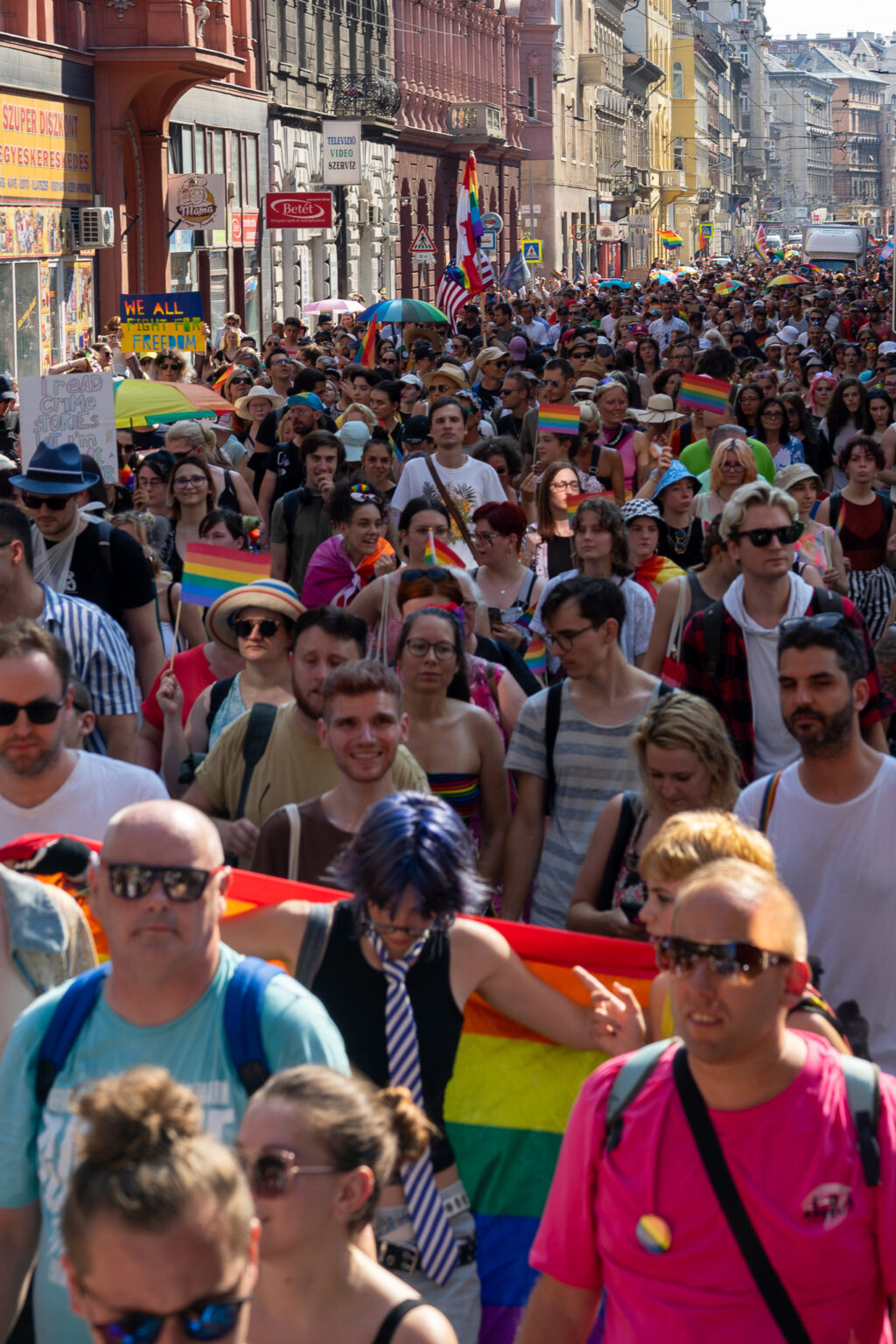
Hungarian Prime Minister Viktor Orbán’s threat to ban the 2025 Budapest Pride march has sparked outrage, with concerns over restrictions linked to the country’s anti-LGBTI law. ILGA-Europe stand in solidarity with the organisers of Budapest Pride, and assert the Hungarian people’s right to peaceful protest.
On 22 February, the Hungarian Prime Minister, Viktor Orbán, delivered a speech in which he threatened to ban Budapest Pride. During his State of the Nation address, Orbán said: “I advise the Pride organisers that they should not bother preparing for this year’s march. It would be a waste of time and money”.
While no legislation has yet been tabled to outright ban the 2025 Pride march, the government has referred to restrictions on its location, justifying this on the basis of the Hungarian anti-LGBTI law adopted in 2021, which bans promotion or portrayal of so-called “divergence from self-identity corresponding to sex at birth, sex change or homosexuality” to minors. This effectively bans depictions or “promotion” of LGBTI identities in the public space or anywhere where minors could be present or see LGBTI related content.
The European Commission has taken Hungary to court over this aforementioned law, and any restrictions or bans on Pride would also contravene laws related to freedom of assembly and freedom of expression, protected in both international law1 and Hungary’s own Constitution2.
Last year, 35,000 people marched, making Budapest Pride the largest recurring civil rights demonstration in the country. Activists anticipate that this year’s march will be Hungary’s largest Pride ever. Many Hungarians who have never attended any Pride marches are publicly declaring their intention to join because the government is threatening a ban.
Banning Pride in Budapest would eliminate a crucial platform for Hungarians to demand that their government listen to its people and uphold democratic values. It would mark a dangerous step toward restricting the right to protest and silencing dissent.
We affirm the value and importance of Pride as a peaceful gathering to assert the equal human rights of LGBTI people, in the context of demanding equal human rights for all. We decry any attempt to stamp out Pride as an attack on everyone’s right to freedom of assembly. We stand in solidarity with Budapest Pride, who will march on June 28, and are determined to fight all obstacles laid in front of them. We urge the authorities in Hungary and every democratic state to respect and protect the right to peaceful assembly. A society that upholds human rights for all is a stronger, more just society for everyone.
Retreat from development aid continues as more governments announce funding cuts
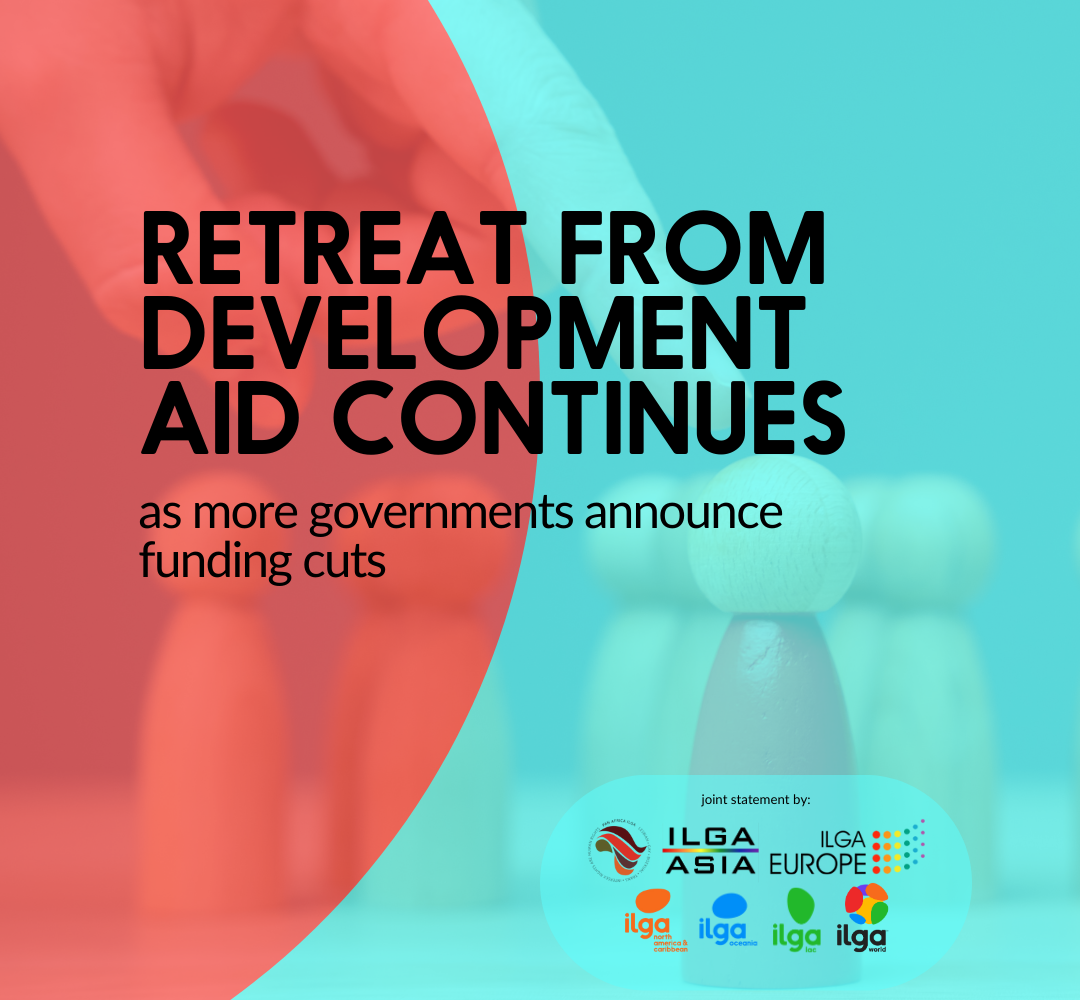
Joint statement by ILGA World, Pan Africa ILGA, ILGA Asia, ILGA-Europe, ILGA-NAC, ILGA Oceania, ILGALAC
Spanish version is available below.
Geneva, 11 March 2025 – ILGA expressed concern today as more governments follow the pattern of drastically cutting foreign aid. So far in 2025, in addition to the United States, the governments of the United Kingdom and the Netherlands announced severe decreases in their ODA (Official Development Assistance), using strong rhetoric while dropping their commitments towards marginalised communities. Switzerland, Belgium, and France have also announced plans or initiatives to follow suit. The impact on communities at risk and on civil society will be devastating.
“Governments are making the conscious choice to stop, or gut, investing in foreign aid,” said ILGA World executive director Julia Ehrt. “These cuts have very concrete consequences, for civil society at large and the provision of health services — including reproductive health — in ODA recipient countries.”
“Health and community centres will no longer be able to access resources and serve marginalised communities. Projects to advance their safety, well-being, and dignity will be shut down due to these government actions. Make no mistake: governments know that these choices will put thousands of people’s lives at risk – yet they’re withdrawing their long-standing support anyway without offering alternatives.”
Since January 2025, the human rights, aid, and development sectors have been facing unprecedented and multiple budget cuts and freezes – with a systematic defunding of work supporting LGBTI people, women and girls, and vulnerable people living in conflict zones and humanitarian crises. These are occuring at a time of a rise of harmful political narratives that target civil society and political participation, and create more space for democratic backsliding and decline in rule of law.
Across ILGA’s six regions, the impact has and continues to be far reaching and devastating, particularly to those who rely on member organizations for support and services. We have seen the closure of offices and reduction in staff and programs. In countries and communities in the global South that already struggle with systemic violence and discrimination, the financial hit amplifies and strengthens the movement against justice, rights and freedom.
Now, the United Kingdom will decrease spending on international development by 40% to only 0.3% of their GDP, to increase their defense expenses by a mere 10%. The decision has been decried by UK International Development Minister Anneliese Dodds herself, who resigned over the prime minister’s cuts to the aid budget. Meanwhile, the Netherlands will cut EUR 2.4 billion from 2027, claiming that “Dutch interests will take precedence”. Despite the majority of the Dutch Parliament has repeatedly expressed support for aid improving the health and equality of women, girls and LGBTI people, the Ministry’s policy letter on international development does not explicitly mention LGBTI communities even once.
Similarly, the Swiss government confirm it will slash its foreign aid budget by CHF 110 million this year; Belgium will cut its foreign aid budget by 25% over five years under a new coalition deal struck at the end of last month; and France is planning to reduce public development aid by up to 40 percent as part of its EUR 32 billion budget cuts for 2025.
While civil society organisations have been dealing with restructuring of development aid since 2020, with priorities rapidly shifting in the aftermath of the Covid-19 pandemic and the war in Ukraine, the public motivation given to justify these new cuts is unprecedented.
“We are particularly alarmed by the rhetoric used in these announcements,” Ehrt continues. “If States are so concerned with their national interests, they should know that inequality is the primary cause of social unrest. And yet, they choose to make the world more unstable and hence less secure by de-prioritising human rights and social justice work.”
“Civil society has been grappling with the effects of shrinking space globally. Countries that have traditionally supported civic organising are now withdrawing support. This will accelerate the decline of democracies worldwide. Every day, we hear news of organisations barely staying afloat and people counting on their support thrown into despair. The world is becoming more unstable by the day: this is not the time for States to turn their backs on those in need. We call on more donors to step in, and for States to listen to the needs of marginalised communities and provide them with a lifeline through sustainable funding.”
Notes to editors:
ILGA World is a worldwide federation of more than 2,000 organisations from over 170 countries and territories campaigning for the human rights of people with diverse sexual orientations, gender identities and expressions, and sex characteristics. https://ilga.org
In the text of this statement, “ILGA” refers to ILGA World, ILGA Oceania, ILGA Asia, Pan Africa ILGA, ILGA-Europe, ILGA North America & Caribbean; ILGA Latin America and the Caribbean.
Continúa el retroceso de la ayuda al desarrollo a medida que más gobiernos anuncian recortes de financiación
Declaración conjunta de ILGA Mundo, Pan Africa ILGA, ILGA Asia, ILGA-Europe, ILGA-NAC, ILGA Oceania, ILGALAC
Ginebra, 11 de marzo de 2025 – La ILGA ha expresado hoy su preocupación ante el hecho de que cada vez más gobiernos sigan el patrón de recortar drásticamente la ayuda exterior. En lo que va de 2025, además de Estados Unidos, los gobiernos del Reino Unido y de los Países Bajos han anunciado fuertes recortes en su AOD (Ayuda Oficial al Desarrollo), utilizando una retórica contundente mientras abandonan sus compromisos con las comunidades marginadas. Suiza, Bélgica y Francia también han anunciado planes o iniciativas para seguir su ejemplo. El impacto en las comunidades en riesgo y en la sociedad civil será devastador.
«Los gobiernos están tomando la decisión consciente de detener o reducir las inversiones en ayuda exterior», dijo la directora ejecutiva de ILGA Mundo, Julia Ehrt. «Estos recortes tienen consecuencias muy concretas para la sociedad civil en general y la prestación de servicios de salud, incluida la salud reproductiva, en los países receptores de AOD».
«Los centros de salud y comunitarios ya no podrán acceder a los recursos y atender a las comunidades marginadas. Los proyectos para mejorar su seguridad, bienestar y dignidad se cancelarán debido a estas acciones gubernamentales. No se equivoquen: los gobiernos saben que estas decisiones pondrán en peligro la vida de miles de personas, pero, aun así, están retirando su apoyo de larga data sin ofrecer alternativas».
Desde enero de 2025, los sectores de derechos humanos, ayuda y desarrollo se han enfrentado a múltiples recortes y congelaciones presupuestarias sin precedentes, con una retirada sistemática de fondos para el trabajo de apoyo a las personas LGBTI, las mujeres y las niñas, y las personas vulnerables que viven en zonas de conflicto y crisis humanitarias. Esto ocurre en un momento de auge de narrativas políticas dañinas en contra de la sociedad civil y la participación política, y crean más espacio para el retroceso democrático y el declive del Estado de derecho.
En las seis regiones de la ILGA, el impacto ha sido y sigue siendo de gran alcance y devastador, especialmente para aquellas personas que dependen de las organizaciones miembros para recibir apoyo y servicios. Hemos visto el cierre de oficinas y la reducción de personal y programas. En los países y comunidades del Sur global que ya luchan contra la violencia y la discriminación sistémicas, el golpe financiero amplifica y fortalece el movimiento contra la justicia, los derechos y la libertad.
Ahora, el Reino Unido reducirá el gasto en desarrollo internacional en un 40 % hasta solo el 0,3 % de su PIB, para aumentar sus gastos de defensa en apenas un 10 %. La propia ministra de Desarrollo Internacional del Reino Unido, Anneliese Dodds, que dimitió por los recortes del primer ministro en el presupuesto de ayuda, ha criticado la decisión. Mientras tanto, los Países Bajos recortarán 2 400 millones de euros a partir de 2027, alegando que «los intereses neerlandeses tendrán prioridad». A pesar de que la mayoría del Parlamento neerlandés ha expresado en repetidas ocasiones su apoyo a la ayuda para mejorar la salud y la igualdad de las mujeres, las niñas y las personas LGBTI, la carta política del Ministerio sobre desarrollo internacional no menciona explícitamente a las comunidades LGBTI ni una sola vez.
De manera similar, el gobierno suizo confirmó que recortará su presupuesto de ayuda exterior en 110 millones de francos suizos este año; Bélgica recortará su presupuesto de ayuda exterior en un 25 % durante cinco años en virtud de un nuevo acuerdo de coalición alcanzado a finales del mes pasado; y Francia tiene previsto reducir la ayuda pública al desarrollo hasta en un 40 % como parte de sus recortes presupuestarios de 32 000 millones de euros para 2025.
Si bien las organizaciones de la sociedad civil han estado lidiando con la reestructuración de la ayuda al desarrollo desde 2020, con un rápido cambio de prioridades a raíz de la pandemia de la Covid-19 y la guerra en Ucrania, la motivación pública dada para justificar estos nuevos recortes no tiene precedentes.
«Estamos especialmente alarmados por la retórica utilizada en estos anuncios», continúa Ehrt. «Si los Estados están tan preocupados por sus intereses nacionales, deberían saber que la desigualdad es la principal causa de malestar social. Y, sin embargo, optan por hacer el mundo más inestable y, por tanto, menos seguro, al restar prioridad a los derechos humanos y a la labor de justicia social».
«La sociedad civil ha estado lidiando con los efectos de la reducción del espacio a nivel mundial. Los países que tradicionalmente han apoyado la organización cívica ahora están retirando su apoyo. Esto acelerará el declive de las democracias en todo el mundo. Todos los días, escuchamos noticias de organizaciones que apenas se mantienen a flote y de personas que cuentan con su apoyo y se sienten desesperadas. El mundo se vuelve más inestable cada día: este no es el momento para que los Estados le den la espalda a las personas que están necesitadas. Hacemos un llamamiento a más donantes para que intervengan, y a los Estados para que escuchen las necesidades de las comunidades marginadas y les proporcionen un salvavidas a través de una financiación sostenible».
Notas para les editores:
ILGA Mundo es una federación mundial de más de 2000 organizaciones de más de 170 países y territorios que hacen campaña por los derechos humanos de las personas con diversas orientaciones sexuales, identidades y expresiones de género y características sexuales. https://ilga.org
En el texto de esta declaración, «ILGA» se refiere a ILGA Mundo, ILGA Oceanía, ILGA Asia, Pan Africa ILGA, ILGA-Europe, ILGA Norteamérica y el Caribe (ILGA-NAC; ILGA América Latina y el Caribe (ILGALAC).
From 9 Activists to a Worldwide LGBTI Movement
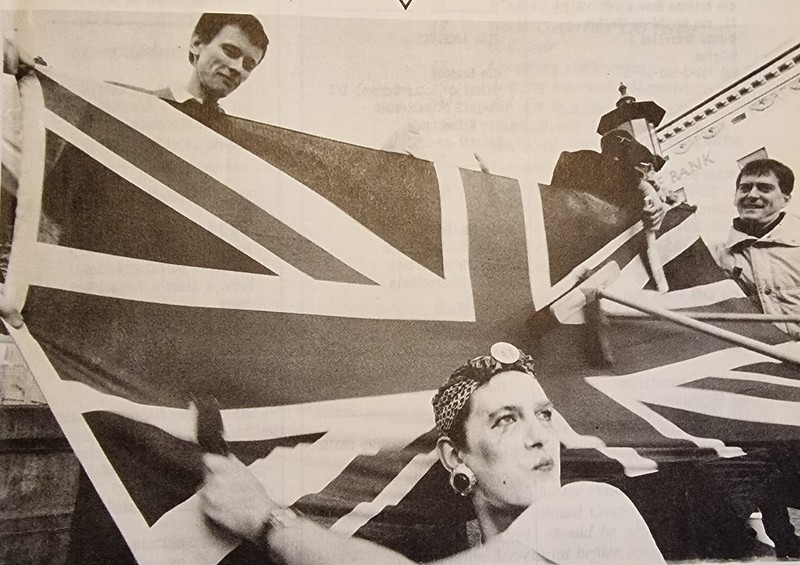
A newly released archive of over 2,000 photographs charts a journey that grew from a small meeting of activists in the UK almost 50 years ago to an international LGBTI movement still striding forward for human rights and equality today.
In 1978, a pivotal moment in LGBTI history unfolded in the United Kingdom, when activists from nine countries gathered in the city of Coventry to establish the International Gay Association (IGA), launching a coordinated global effort for LGBTI rights. Acting on the need for a dedicated space for lesbian activism, the International Lesbian Information Service (ILIS) was founded in 1980. Over time, IGA evolved to become the International Lesbian, Gay, Bisexual, Trans and Intersex Association (ILGA), integrating broader identities into its advocacy. In 1996, ILGA-Europe was established as its regional branch, responding to the distinct political and legal landscapes of the European movement.
The ILGA & ILIS History Collection, meticulously curated by long-time activist Nigel Warner, offers a profound insight into these formative years of the LGBTI movement. Nigel’s dedication to documenting and preserving this history stems from his deep ties to ILGA, where he served in various roles, including overseeing its finances from 1987 to 1994. He also served in ILGA-Europe, as board member and treasurer from 2000 to 2005, and as our representative at the Council of Europe from 1998 to 2018.
Comprising over 2,000 photographs contributed by 80 activists, the collection documents significant events and themes from 1978 through the 1990s. It not only shows the public demonstrations and conferences but also provides contextual information, including contemporary documentation and personal accounts, painting a comprehensive picture of the early international LGBTI movement.
Today, as we witness a resurgence of right-wing ideologies and policies threatening LGBTI rights on an international scale, this collection serves as a poignant reminder of our community’s resilience. The challenges we face are formidable, with countries electing openly LGBTI-phobic leaders, and enacting laws that roll back hard-won rights. Yet, the history captured in these photographs reminds us that the movement has weathered significant adversities before.
The ILGA & ILIS History Collection stands as a testament to the power of solidarity, courage, and unwavering commitment. And if we remember our past, we can inform our present and inspire our future. As we navigate the current challenges, let this collection be a source of strength and a reminder that, together, we can overcome adversity and continue the march toward equality.
Explore the ILGA & ILIS History Collection and join us in honouring the legacy of those who paved the way for the rights we uphold today.
ILGA-Europe Statement: Turkey is detaining LGBTI+ activists and journalists, and targeting basic rights
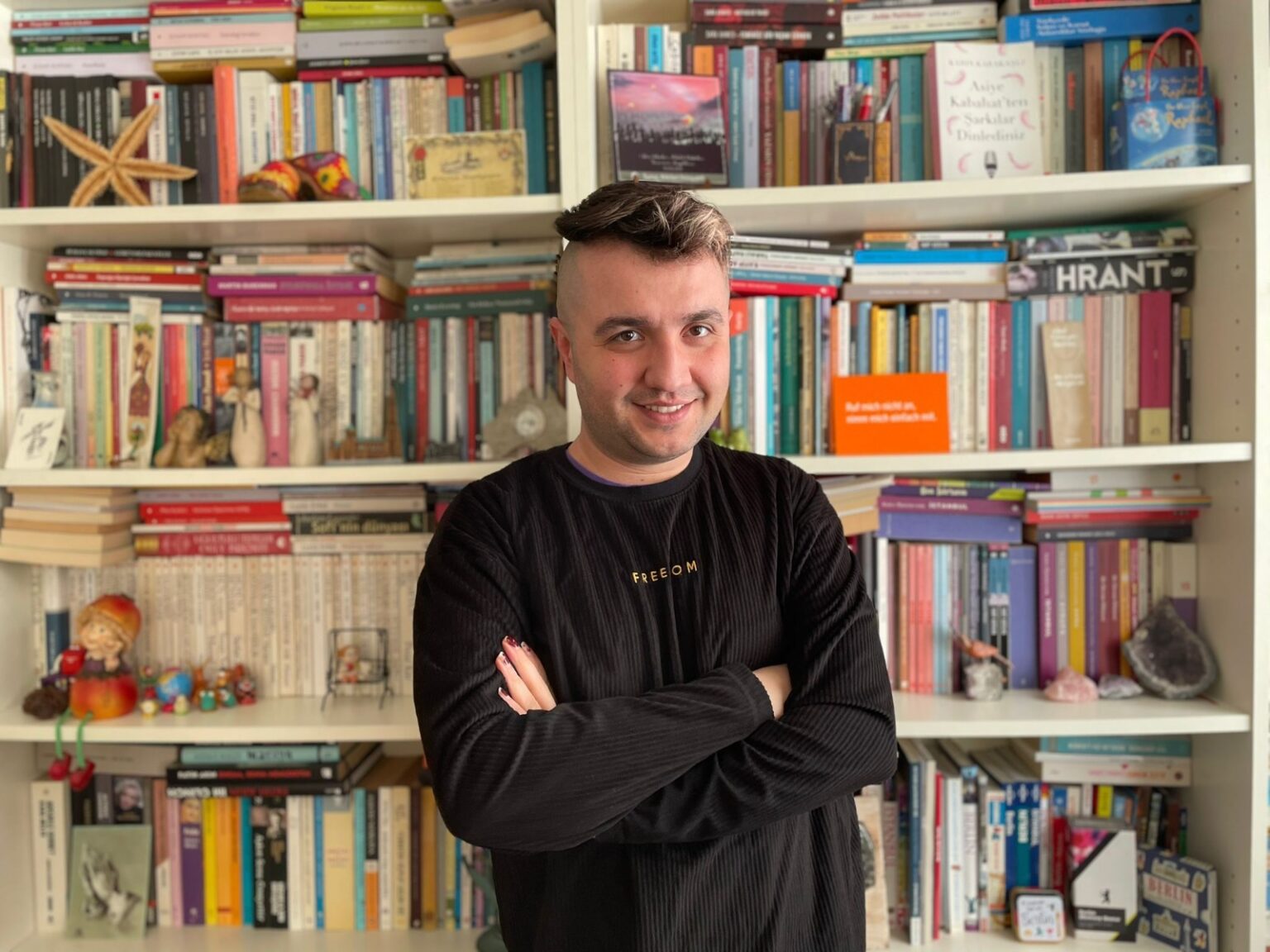
The Turkish government has intensified its repression of LGBTI+ human rights defenders, detaining activists and introducing draconian laws that further restrict legal gender recognition, trans healthcare, and free expression. The proposed measures mirror anti-LGBTI+ laws in Russia and Hungary, prompting urgent calls for action.
The last two weeks have seen an increasingly severe crackdown on LGBTI+ human rights defenders and activists in Turkey. This comes during a time when the Turkish government is eroding civic rights and freedoms, including detaining journalists, opposition politicians, and targeting civil society organisations (CSOs) through smear campaigns and further restrictive legislation.
On 18 February, journalist and Editor-in-Chief of KaosGL.org, a news portal dedicated to LGBTI+ issues, Yıldız Tar, was arrested and accused of “membership in a terrorist organisation”. They were arrested alongside a number of journalists, activists (including Erkin – a trans activist), artists and opposition MPs, amounting to 52 arrests that day.
The following week, on 27 February, draft amendments of the Turkish government were leaked to the press which aim to amend the Criminal and Civil Codes to further restrict access to legal gender recognition and trans-specific healthcare, ad criminal sanctions to these as well as criminal sanctions for “any person who publicly encourages, praises or promotes attitudes and behaviors contrary to innate biological sex and public morality” and “persons of the same sex [who] perform an engagement or marriage ceremony”.
The further restrictions to accessing legal gender recognition are:
- Increasing the age of eligibility from 18 to 21.
- Reintroducing mandatory sterilisation (a provision previously annulled by the Constitutional Court and found to violate the European Convention of Human Rights by the European Court of Human Rights (ECtHR)).
- Introducing a lengthier process for approval, requiring an official medical board report to be issued by a “full-fledged training and research hospital designated by the Ministry of Health as a result of four evaluations to be made at least three months apart” (previously it was to be obtained from a training and research hospital), with no maximum duration set, potentially allowing indefinite delays.
Additionally, a new requirement for accessing trans-specific healthcare is introduced, stipulating that it can only be carried out after permission is obtained from one of the above-described hospitals designated by the Ministry of Health.
The criminal sanctions being introduced include sentences of:
- 3-7 years imprisonment and a judicial fine from 1,000-10,000 days for anyone who commits gender reassignment surgery contrary to the new provisions, with the recipient of the surgery facing 1-3 years imprisonment.
- 1-3 years imprisonment for “Any person who publicly encourages, praises or promotes attitudes and behaviors contrary to innate biological sex and public morality”.
- 1.5-4 years imprisonment for “persons of the same sex [who] perform an engagement or marriage ceremony”.
These new legislative restrictions will further restrict the already inaccessible process of legal gender recognition and access to trans-specific healthcare in Turkey (see our previous statement regarding this), making legal and medical transition nearly impossible.
The requirement for mandatory sterilisation and medical certification in order to access legal gender recognition has already been deemed abusive by international human rights bodies. ECtHR case law is clear that such requirements are in violation of the right to privacy and the right to bodily integrity. The Parliamentary Assembly of the Council of Europe (PACE) has called on its member states to “develop quick, transparent and accessible procedures, based on self-determination”. The UN Independent Expert on Protection Against Violence and Discrimination Based on Sexual Orientation and Gender Identity has also recommended that legal gender recognition should be based on self-determination, be a simple administrative process, and not require applicants to fulfil abusive requirements such as surgical interventions or requiring medical certification.
A clear discriminatory attack
The new proposal for criminal sanctions for anyone “who publicly encourages, praises or promotes attitudes and behaviors contrary to innate biological sex and public morality” will impact ordinary people wishing to dress or be called in a way that is different from their biological sex assigned at birth, but also it will also target any debate, awareness raising, or portrayal of topics related to challenging gender binarism, which will impact LGBTI+ people, LGBTI+ CSOs, journalists, and other organisations or people defending freedom of expression.
The criminalisation of symbolic engagement and marriage ceremonies represents a clear discriminatory attack against the LGBTI+ community, who simply wish to honour their partnerships and love in a country where there is no possibility for a legal recognition of same-sex relationships.
The proposals’ provisions are similar to the anti-”LGBTI propaganda” laws seen already in Russia, Hungary and Bulgaria. The European Court of Human Rights has already ruled the Russian law to violate freedom of expression and the prohibition of discrimination, and the EU has launched infringement proceedings against both Hungary and Bulgaria for their laws.
ILGA-Europe calls on the Ministry of Justice to indefinitely withdraw the draft amendments and the Turkish parliament to reject the proposed legislative amendments, which introduce further discrimination against the LGBTI+ community, run contrary to international fundamental rights standards and decisions of Turkey’s Constitutional Court, and which will make the lives of LGBTI+ people in Turkey even more arduous, without providing any additional benefits to the general public.
We call on the Turkish government to immediately release Yıldız Tar and stop crackdowns on legitimate civil society organisations, journalists and others forming part of democratic checks and balances.
The Turkish government should ensure that everyone is equal under the law, and introduce provisions granting equality in line with the jurisprudence of the European Court of Human Rights, including non-abusive and accessible access to legal gender recognition, trans-specific healthcare, legal recognition of partnerships and the right of all to freedom of expression and information.
How you can help
Bring attention to these developments via media and social media:
- Demand the immediate release of Yıldız Tar and Erkin
- Speak out against the crackdown on CSOs, journalists and human rights defenders
- Speak out against the proposed anti-LGBTI+ legislation
Read our press release here.
Statement: ILGA-Europe Condemns Escalating Repression of Civil Society in Kazakhstan
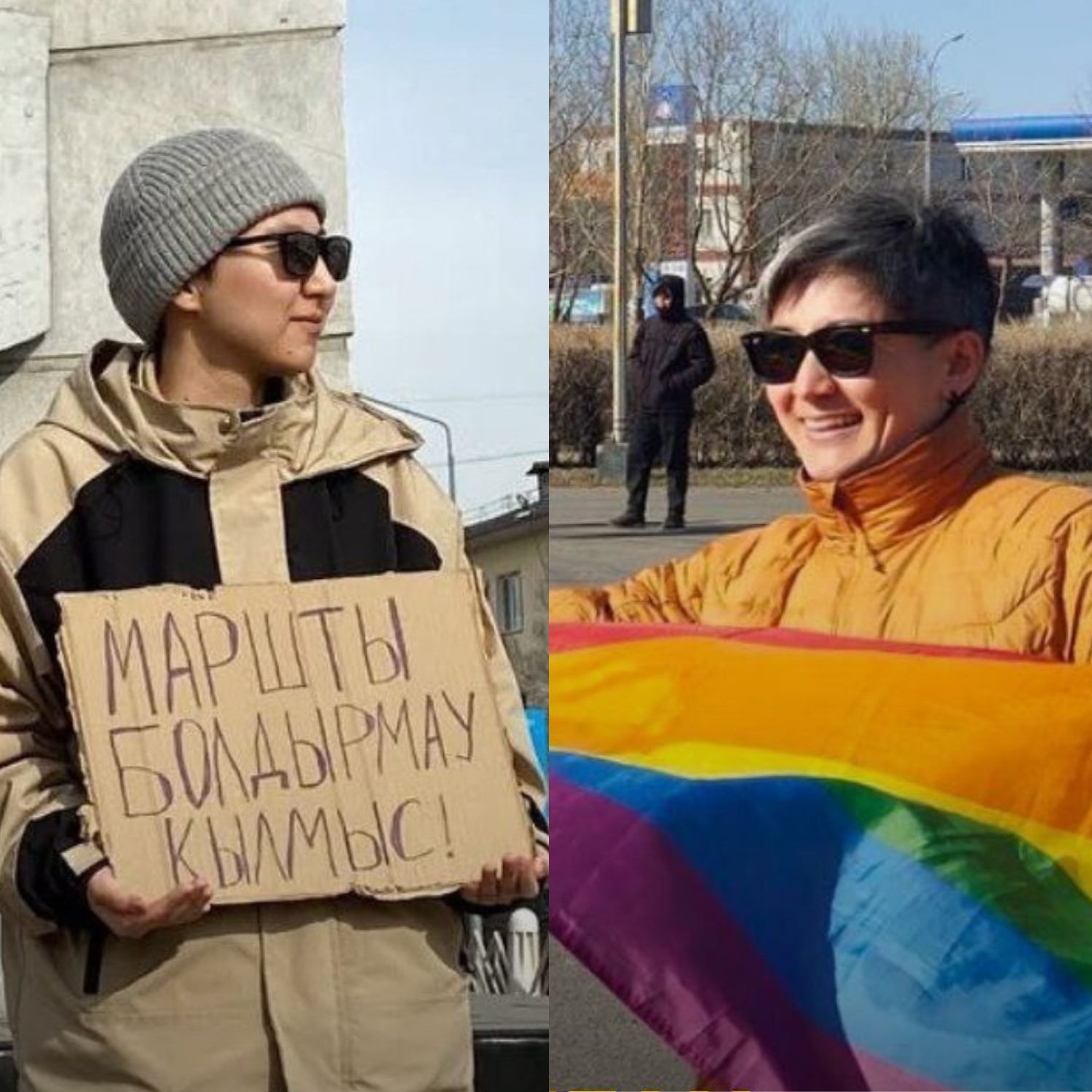
Call for Immediate Release of Detained Activists and an End to Arbitrary Persecution
ILGA-Europe strongly condemns the escalating repression and intimidation of civil society in Kazakhstan, exemplified by the recent detention of Zhanar Sekerbayeva and Aktorgyn Akkenzhebalasy – activists from Feminita, an informal LBTQ civil society initiative. Their arbitrary arrests and rushed sentencing to 10 days of administrative detention for a peaceful protest in 2024 mark yet another attack on fundamental freedoms.
These are not an isolated incident. It is part of a broader pattern of persecution, including arrests, fines, physical attacks, police raids, and legislative proposals designed to stifle legitimate civil society organisations advocating for equality—whether for women, LGBT individuals, or other marginalised groups. These particular arrests follow a recent unpunished violent attack on Feminita’s community event and another court decision to fine its activist, Gulzada Serzhan, for “managing an unregistered public association”. Activists anticipate further arrests ahead of Women’s Day demonstrations on 8 March.
We stand in full solidarity with LGBTI and wider civil society in Kazakhstan, who are facing an alarming crackdown on their rights and safety. Reminding the government of Kazakhstan of its international legal obligation to respect the peaceful expression of opinions, we call for the immediate release of detained activists, including Zhanar Sekerbayeva and Aktorgyn Akkenzhebalasy, an end to arbitrary prosecutions, and accountability for those enabling and perpetrating these repressions. We will be working with EU institutions to ensure that the respect for fundamental rights and freedoms, including freedom of assembly, is an integral part of relations with Kazakhstan.
How BIPOC queer activists are using artivism as resistance
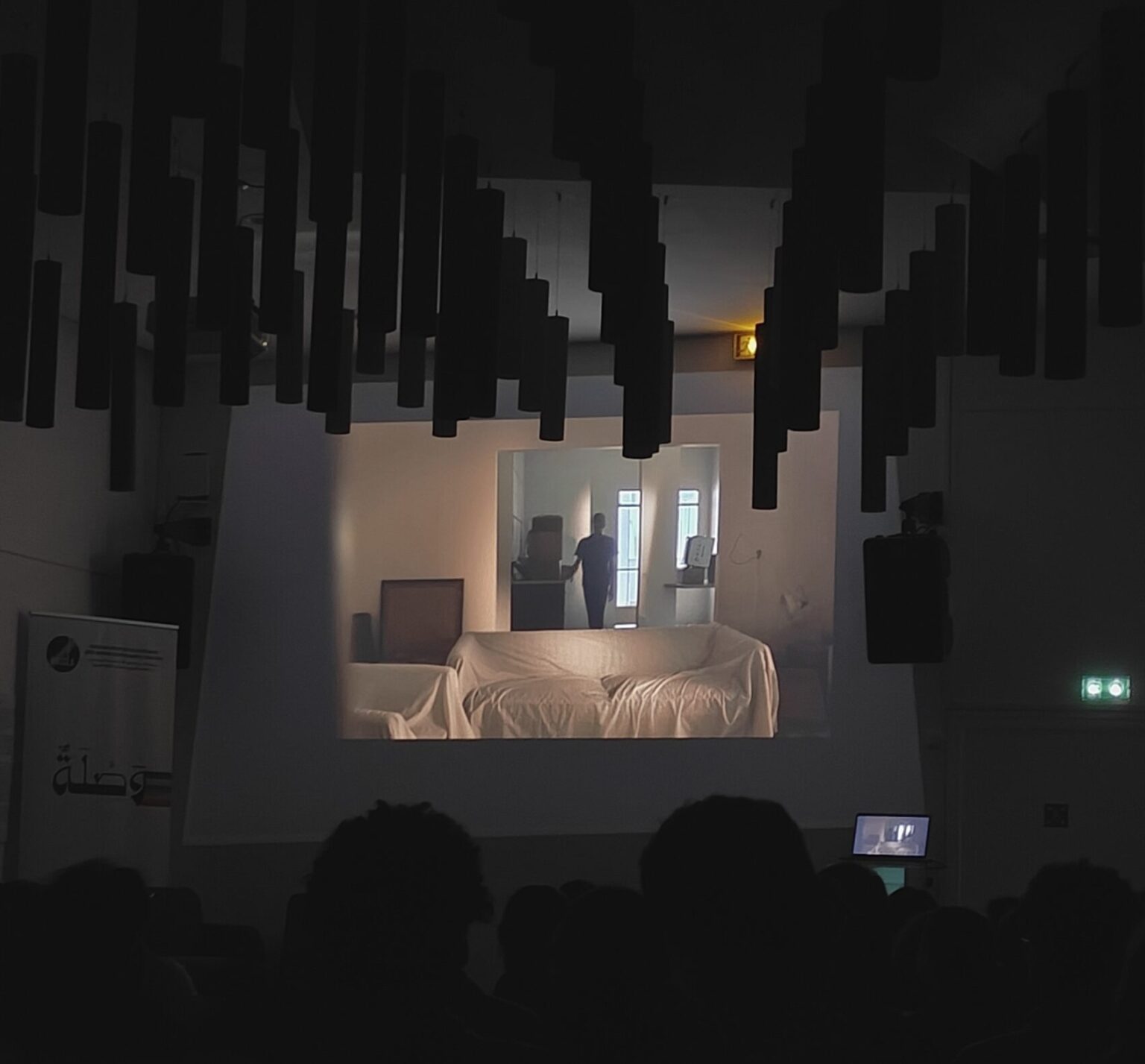
Art has always been a powerful tool of resistance, allowing the oppressed to share their truths and experiences. For many Black, Indigenous, or People of Colour (BIPOC1) LGBTI activists, it is more than expression—it’s a survival tool, a way to build community, a political statement, and a means to reclaim joy.
With this new blog series, we’re sharing insights from the work of LGBTI organisations tackling injustice, racism, and the unique challenges faced by racialised LGBTI communities in Europe. We hope their stories and practices will inspire and resonate. We believe that solutions and approaches that include a few will pave the way and point to the solutions for many. You can read the previous blog in the series here.
Across Europe, LGBTI collectives are harnessing film, music, poetry, and performance to tell their stories, connect with others, and challenge dominant narratives. In today’s blog, we explore how four different racialised queer groups use art in their activism.
Wassla Ciné Queer: Film as a lifeline
For Wassla, a queer cultural organisation based in Paris that works with migrants, film is more than entertainment – it is a lifeline. Their initiative, Ciné Queer, curates short and feature-length movies directed by Arab filmmakers that explore LGBTQIA+ experiences in Arabic-speaking communities. More than just screenings, these events spark critical conversations. Often followed by discussions with directors, the gatherings create a space where people can process what they see on screen, debate social issues, and reflect on their own realities.
At Wassla, there is no distinction between volunteers and participants; everyone plays a role in shaping the community. Many of their screenings feature works by their own members, amplifying voices that might otherwise remain unheard. With audiences sometimes reaching 80 people or more, Ciné Queer combats isolation and fosters solidarity in a safe and empowering space. For Wassla, film is not just about representation, it is about connection, healing, and breaking the silence.
Sadiqa and LIMBO queer exilic narratives: Music as a battle cry
“I am a reality, not an illusion.” These words, from Sadiqa’s song The Voice of the Queer, embody the defiant spirit of many BIPOC queer artists who refuse to be erased. Sadiqa was part of Art for Change, an initiative that examined art as a tool for solidarity and engaged scholarship. During the COVID-19 pandemic, Art for Change brought together queer refugee artists, offering a space to create and share music, poetry, film, and design.
That work continues through LIMBO queer exilic narratives, a platform for queer refugees in the Netherlands to tell their stories through art, to challenge the laws and structures that criminalise their existence, and to carve out spaces of belonging. Sadiqa’s music does not ask for permission; it demands recognition. Their lyrics are a protest against laws such as Article 489 of the moroccan law, which criminalises the sexuality of queer people, and a call out to all systems of oppression that seek to control and suppress marginalised communities:
“The voice of the queer is everywhere, calling against oppression… now we are all aware of the system’s malfunctions”
صوت الكوير في كل مكان، ينادي ضد الطغيان… مازال الحق يبان، و كلشي يرجع مزيان
Rainbow Mind UK: Art as radical self-care
For Rainbow Mind UK, creativity is a crucial part of their radical self-care approach. Working with LGBTI people of colour and refugee communities in the UK, they realised that traditional self-care practices often required participants to re-live painful experiences. Instead, they turned to art and music as a means of engagement, connection, and healing.
One of their most popular practices is the Queer Pencil Disco, where participants use drawing as a form of self-expression, and another involves recalling empowering song lyrics when words are hard to find. For a group of LGBTQ+ refugees, ‘Flowers’ by Miley Cyrus became an anthem of resilience. These practices offer creative expression and make self-care accessible and joyful. Rainbow Mind UK uses art to help people take control of their stories without re-experiencing trauma.
Break Isolation Group: Slam poetry as protest
For Break Isolation Group, spoken word and slam poetry are forms of protest, catharsis, and survival. Many members are queer racialised asylum seekers and refugees who face state repression, deportation threats, and systemic silencing in Germany.
Ann and Rose from Break Isolation Group explain that poetry provides them with a platform to express anger, tell their stories, and build community when traditional political spaces are closed to them.
“We are not able to speak openly in many spaces anymore,” Ann explains. “So now, we turn to slam poetry. Art allows us to purge, to bring experiences to life in a way that just talking about them doesn’t.”
For Break Isolation Group, redefining what counts as ‘art’ is part of their activism. Rose points out that in many BIPOC cultures, storytelling has always been woven into song and dance, but Western frameworks often fail to recognise these as legitimate art forms. “Our ancestors sent messages through music; this is nothing new.” Through their work, Break Isolation Group challenges Eurocentric definitions of art and reclaims creative expression on their own terms.
New funding
ILGA-Europe continues its commitment to providing funds and support for this part of LGBTI movement that addresses intersectional impacts of injustice, racialisation, racism and supremacy. On 30 January 2025, we launched a new call for proposals to support European groups working for and with racialised LGBTI communities. This is the third cycle of this programme. Apply by 30 March 2025, 23.59 CET.
- BIPOC is one of many abbreviations that our partner organisations use to self-identify the racialised communities they belong to. We use it here while acknowledging that there are other terms that might be more apt in different contexts by various groups, such as BAME (Black, Asian, and minority ethnic), BAPOC (Black, Asian and People of Colour), LGBTQI+ individuals of African descent, Arab queers from SWANA region (Southwest Asian and North African region) to name a few that are used by organisations we work with. ↩︎
Our submission to the EC 2025 Rule of Law report
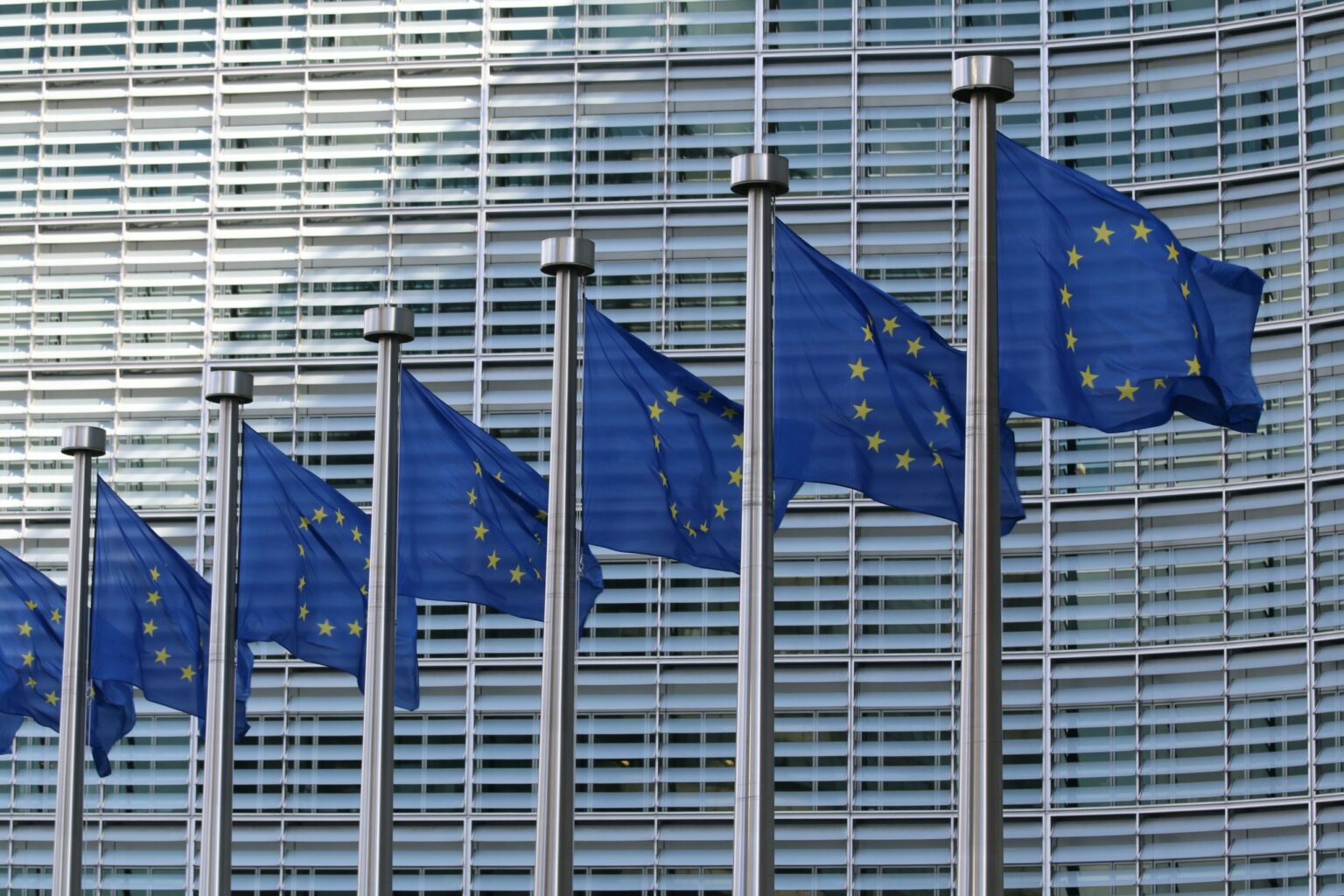
After a year of elections across the EU, threats to democracy and the rule of law are growing both in Europe and globally. Our submission highlights more clearly than ever the connection between these threats and the instrumentalisation of LGBTI people.
Disinformation, hate speech, and discriminatory political discourse have surged in many countries, directly impacting the lives of LGBTI people. At the same time, violence and restrictive legislation against LGBTI individuals are increasing, undermining the rule of law.
Meeting the realities faced by racialised LGBTI asylum seekers
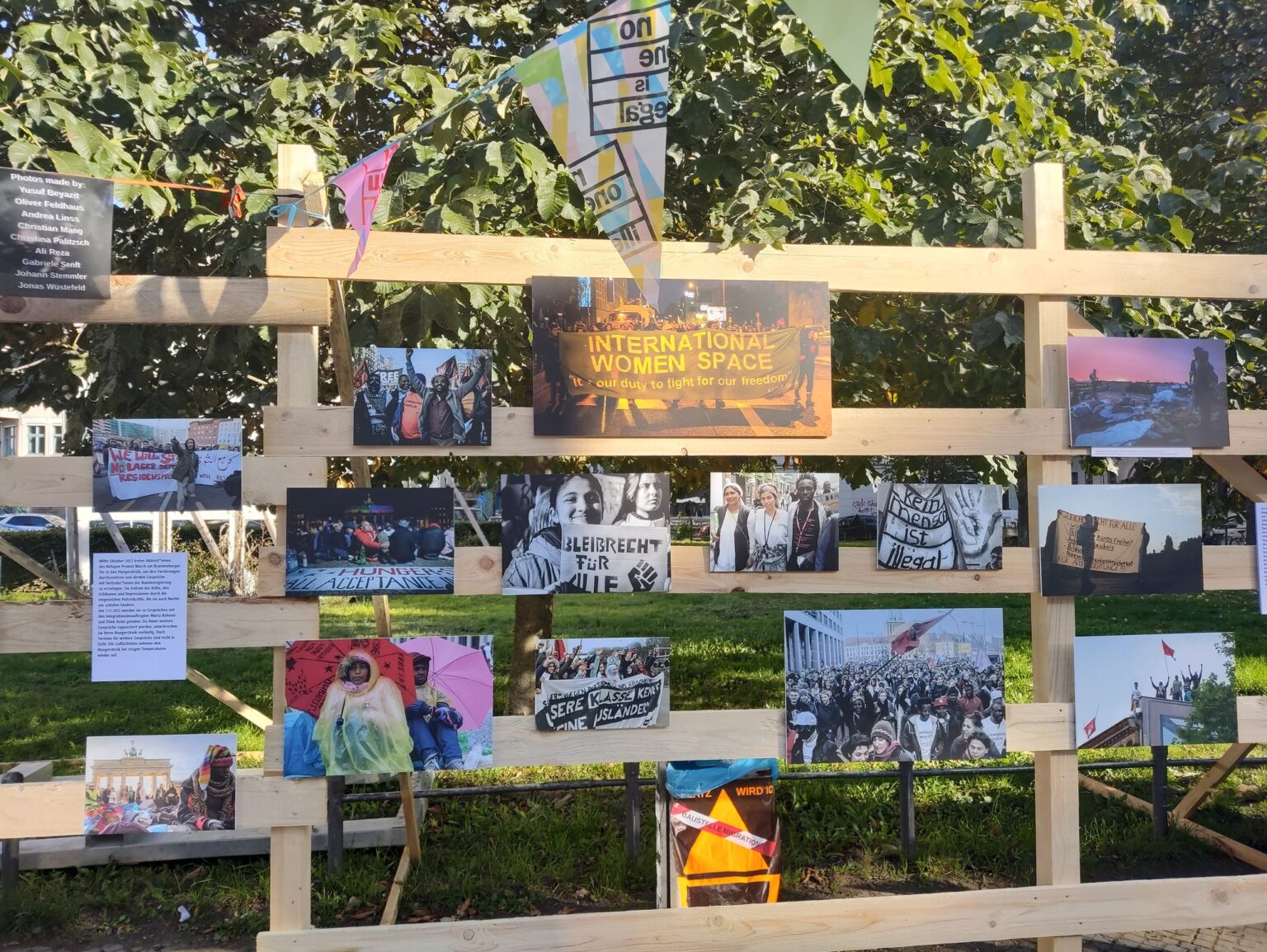
In the first of a new series of blogs, highlighting the work of LGBT organisations tackling injustice, racism, and discrimination, we explore how The Break Isolation Group in germany supports racialised LGBTI asylum seekers.
“No one can tell you better how to navigate the system than someone who has lived through it. We’re tired of people deciding for us or speaking on our behalf.“
In this series, we’re sharing insights from work done by LGBTI organisations who address intersectional impacts of injustice, racialisation, racism and supremacy, and specific harms affecting the lives of racialised LGBTI communities across Europe. We hope their stories and practices will inspire and resonate across communities. We believe that solutions and approaches that include a few will pave the way and point to the solutions for many.
The Break Isolation Group, part of the International Women* Space (IWS), provides a compelling example of how grassroots, refugee-led initiatives can address the systemic isolation and oppression faced by asylum seekers in Germany. The group operates alongside Resilient Voices, a working group focusing specifically on the needs of queer refugees. Together, they tackle the overlapping and distinct challenges faced by marginalised communities in the asylum process.
Understanding the system: isolation as policy
The asylum system in Germany like in many other countries across Europe, as described by Ann, a member of IWS, “thrives on isolation.” Refugees are often placed in remote, restrictive accommodation centres, known as lagers1, which are specifically designed to curtail mobility and exacerbate social exclusion. Ann reflects on the systemic dehumanisation inherent in this setup: “The system seems to want us to be content with the bare minimum, to accept being treated as less than human.”
For queer asylum seekers, the challenges multiply. Ann highlights that the asylum process burdens LGBTI people with proving their sexuality in invasive and humiliating ways: “Just saying you identify as queer isn’t enough—you’re expected to provide proof, though no one tells you what that proof looks like.” Shared accommodations expose them to further risks. Rose, another member of IWS, points out, “Homophobia doesn’t disappear when people leave their countries. You’re often housed with people from the same communities, who perpetuate the same biases and violence.”
Peer-to-peer support as a cornerstone of resilience
Against this backdrop, Break Isolation Group has built its work on peer-to-peer support. Ann emphasises the approach’s significance: “No one can tell you better how to navigate the system than someone who has lived through it. We’re tired of people deciding for us or speaking on our behalf.”
Their monthly visits to lagers allow them to connect directly with asylum seekers, but discretion is key to ensuring safety. “We don’t loudly announce that we’re queer representatives,” Rose explains. “Instead, we create safe ways for people to connect with us—through WhatsApp groups or anonymous info lines funded by collaborators.”
These efforts help asylum seekers feel less isolated in a system designed to isolate. “Sometimes, just seeing a familiar face—someone who looks like you and has been through the same thing—can be transformative,” says Ann.
Bridging isolation through community building
Break Isolation Group also focuses on fostering community. Their strategies range from storytelling and shared meals to more structured activities like legal workshops. Rose shares an example: “The Ubuntu Kitchen brings women together to cook and share meals. Food is a powerful way to build trust and connection.”
Annual retreats offer a space for asylum seekers to step away from the daily struggles of the asylum system. These events combine moments of rest and healing with workshops and advocacy training, helping participants recharge and develop skills for navigating the system and organising collectively.
From survival to advocacy
While much of their work addresses immediate needs, Break Isolation Group also aims to challenge the systemic structures perpetuating these challenges. They advocate for the abolition of lagers, the right to work and study, and freedom of movement. “The asylum system isn’t designed to support us—it’s a hotbed of oppression,” Ann explains. “We need to dismantle these systems and replace them with ones that prioritise dignity and autonomy.”
The group is also campaigning against the introduction of payment cards (Bezahlkarte) for asylum seekers, a measure resulting from the revision of the Asylum Seekers’ Benefits Act. These cards limit and control how asylum seekers can spend their financial support, preventing them from withdrawing cash and restricting where and on what they can spend money. “This system dehumanises us by taking away our ability to make basic choices,” Rose says. “It’s a regression to policies that were already deemed harmful a decade ago, when a similar system of vouchers was in place.”
Another critical area of their advocacy is recognising climate refugees. Rose highlights the gap in current asylum frameworks: “The system only seems to understand migration as a result of war, but climate change is forcing millions to move, and we need policies that acknowledge that.”
Lessons for the wider movement
Break Isolation Group is a grassroots, refugee-led initiative that addresses systemic injustice. Their work demonstrates that those most affected by these systems are best placed to identify solutions and changes that need to come about. As Ann says, “We are not just survivors of these systems—we are experts in how to dismantle them.”
Group’s focus on peer-to-peer support and community-building, the intrinsic intersectionality of their work and the bedrock of their advocacy efforts being around basic human rights provide valuable insights for broader movements. “When we focus on the most marginalised, we create solutions that benefit everyone,” Rose asserts.
The group’s work challenges us to ask: how can we listen to and amplify the voices of those most affected? How can we build movements that prioritise both immediate care and long-term transformation? Where our work could lead us when we put basic human rights, like freedom of movement, or intersectionality, like racial and climate justice, at its forefront?
New funding
ILGA-Europe continues its commitment to providing funds and support for this part of LGBTI movement that addresses intersectional impacts of injustice, racialisation, racism and supremacy. On 30 January 2025, we launched a new call for proposals to support European groups working for and with racialised LGBTI communities. This is the third cycle of this programme. Apply by 30 March 2025, 23.59 CET.
- Here and throughout the blog, we use “lager” as a reference to refugee accommodation centres. This term is strategically chosen by activists, including Break Isolation Group, to describe the isolating nature of these guarded buildings and complexes, which are typically located on the outskirts of towns, disconnected from communities, and impose curfews and visitor restrictions. Activists reject the official term “Heim” (a German word for home) because it sugarcoats the dehumanising character and historical context of this form of accommodation.
↩︎
Statement: ILGA-Europe calls on Italian government to end anti-LGBTI rhetoric and violence
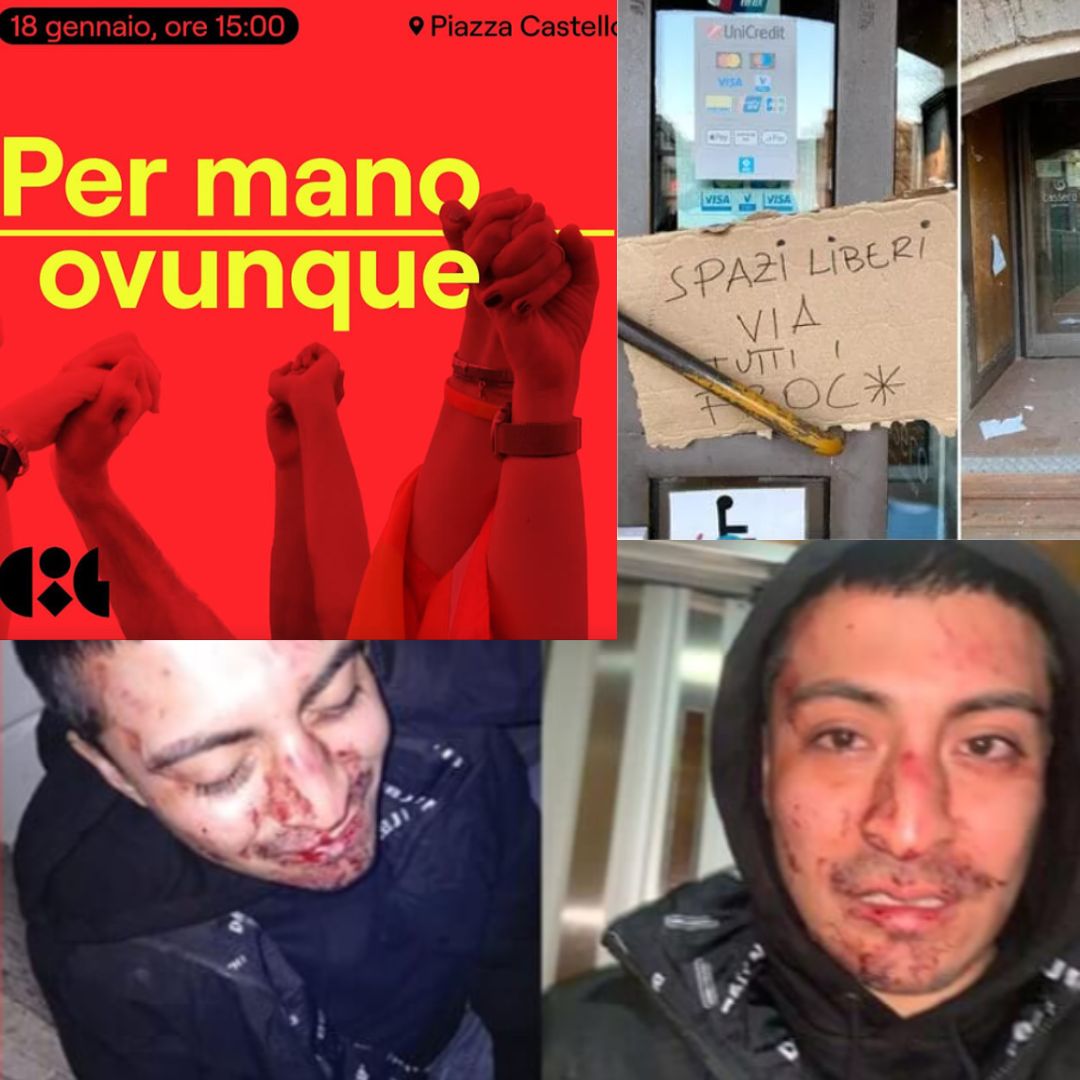
ILGA-Europe stands in solidarity with Italian LGBTI people who continue to face increased hatred and violence and calls on the Italian government to stop feeding a growing divide in Italian society
Over the last weeks, Italy has seen a new surge of LGBTI-phobic violence. There have been no less than four hate-motivated attacks on LGBTI people in the last four weeks, prompting a large manifestation tomorrow in Milan demanding the government take action.
According to the ILGA-Europe’s Rainbow Map, Italy still lacks crucial legal protection for LGBTI people, such as comprehensive hate crime and hate speech laws that would protect LGBTI people, as well as other minorities, from hatred and violence. This legislative gap is even more worrying at a time when violence against LGBTI people in Italy is alarmingly on the rise, exacerbated by the use of openly LGBTI-phobic rhetoric by some politicians. The persistent “witch hunt” against so-called “gender ideology” has created a fertile ground for justifying and amplifying LGBTI-phobic hatred within society. Such narratives not only perpetuate discrimination but also embolden those who act on their prejudices, further endangering the lives and well-being of LGBTI people.
In addition to the increased frequency and severity of LGBTI-phobic attacks (one of the attacks on New Year’s Eve, perpetrated by ten assailants on a gay couple who were holding hands, resulted in serious injuries to the couple – including a head injury and broken nose), the Cassero LGBTQIA+ Centre was vandalised with threatening messages which read: “Free space from faggots”. This targeting of an LGBTI organisation is evidence of the more systemic nature of the issue – those who would want to commit LGBTI-phobic violence have been emboldened by the rhetoric and actions of the ruling parties. A legislative project, the so-called ‘Zan’ law, was voted down in 2021. The law would have designated violence against LGBTI people and disabled people, as well as misogyny, a hate crime. Giorgia Meloni’s party voted against the law and publicly celebrated its defeat.
In light of these troubling developments, we urgently call on political leaders to initiate a meaningful process to establish legal protections for LGBTI individuals in Italy. Most pressingly, we demand that politicians, particularly influential figures within the government—such as Prime Minister Giorgia Meloni and Minister Eugenia Roccella—publicly and unequivocally condemn the growing wave of LGBTI-phobic violence.
Regardless of political considerations, it is the bare minimum for a government that claims to uphold democratic values to take a firm and unwavering stance against violence, especially when it targets minorities. Accepting any form of violence as “the new normal” is incompatible within a society that aspires to equality, dignity, and justice for all.
We urge immediate action to ensure that Italy will return to being a safer, more inclusive country where everyone is protected and valued, regardless of their sexual orientation, gender identity or sex characteristics.
The challenges and triumphs for the LGBTI movement in 2025
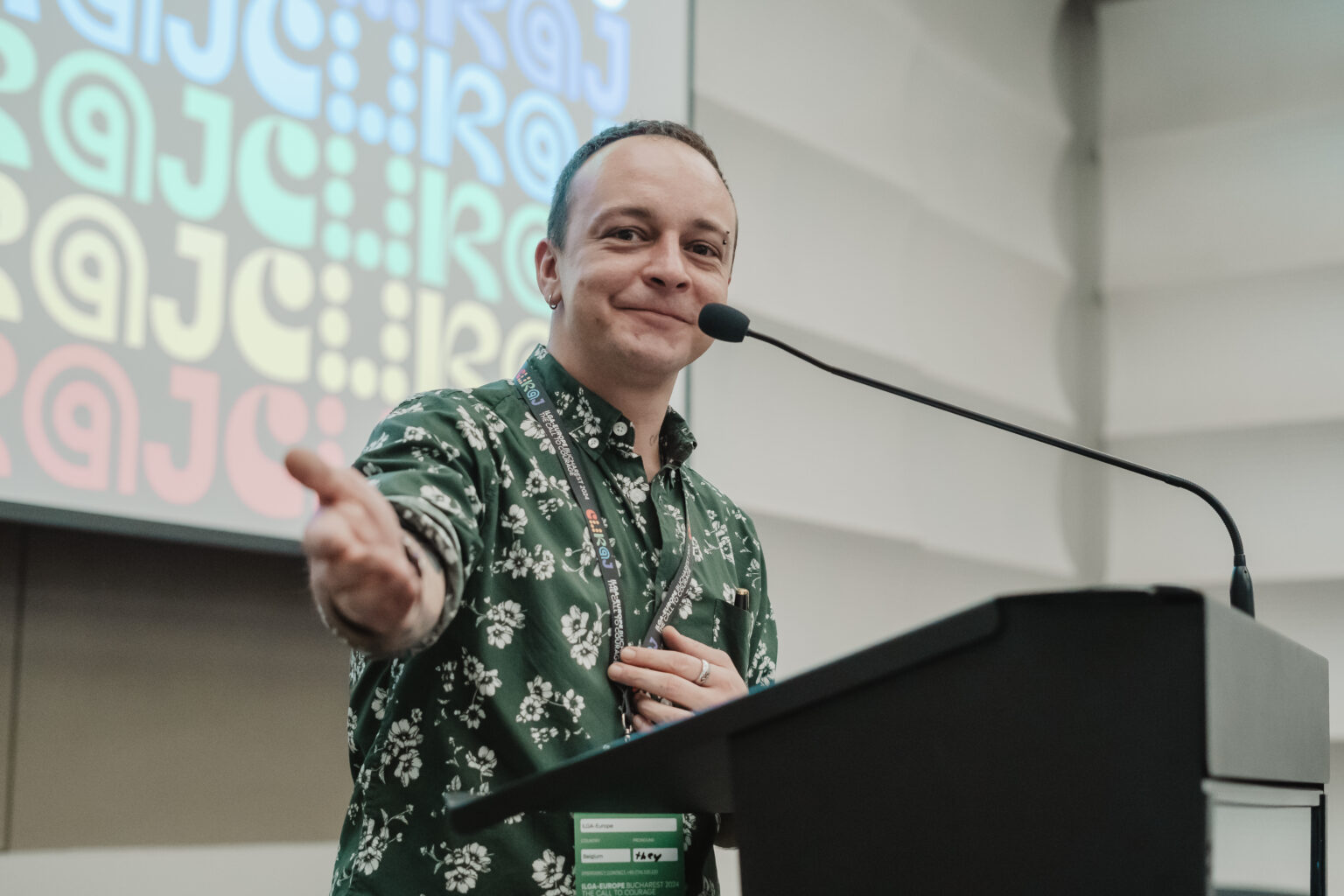
ILGA-Europe’s Executive Director Chaber shares insights into the movement’s direction, priorities, and how we can collectively move forward.
Q: Where do you see the LGBTI movement heading in 2025?
A: The past few years have shown how challenging these times are for the LGBTI movement, yet they’ve also revealed our community’s remarkable ability to adapt and persevere. We’re facing increased opposition, attacks on rights, and instrumentalisation in politics. However, there is hope in how the movement builds alliances—both within and beyond—and its capacity to engage underrepresented communities.
Many organisations are working tirelessly to shift societal attitudes and foster meaningful connections. These efforts to unite and inspire, after years of disconnection caused by the pandemic and conflicts, are the triumphs we can expect this year.
Q: What do you think the movement needs to focus on in 2025?
A: From the vantage point of an organisation that serves the movement across 54 countries, the diversity of needs and priorities is vast, so we cannot list or prescribe what groups and organisations should focus on. The issues that are prioritised locally are prioritised because organisations on the ground know best how to reflect the needs of their communities. And each of them, regardless of whether they’re organising prides, supporting communities with services, advocating with their governments or doing any other thing, plays a crucial role in the ecosystem. But an interesting question is on the broader themes that many organisations wish they had more capacity to address. These include fostering intersectional approaches, engaging underrepresented communities, combating disinformation, and building alliances across movements.
This shows it’s vital to have dedicated, flexible funding to enable organisations to meet these challenges effectively. Unfortunately, resource cuts across the region make these goals harder to achieve, so increasing organisations’ abilities to adapt and deliver in these circumstances will be a key point for the year and beyond.
Q: What is ILGA-Europe’s role in achieving these goals?
A: ILGA-Europe plays three key roles:
- Resource mobilisation: With funding cuts from governments and private philanthropy, we must advocate for sustained investment in LGBTI movements.
- Agenda-setting: It’s crucial to influence institutions and governments to ensure policies address the needs of LGBTI communities and empower civil society.
- Thought leadership: We’re prioritising developing strategies and capacities in areas that have not had enough attention paid to them but will be core to enacting change in the future, such as social acceptance, socio-economic justice, and emerging fields like AI. Our role is to explore and provide tools for organisations to engage with these issues.
Q: What challenges does the movement face, and how can they be tackled?
A: Insufficient political will remains a significant barrier. Many governments believe they’ve already achieved enough in terms of LGBTI rights, while others are actively rolling back protections. Anti-rights initiatives, such as anti-LGBTI propaganda laws and restrictions on foreign-funded organisations, are spreading.
To counter these, we must galvanise political will and mobilise governments and institutions to stand against such measures. It’s equally vital to educate and engage the public, building comprehensive advocacy and alliance strategies.
Q: What policy trends concern you most for 2025?
A: We’re deeply concerned about continued rollbacks on trans and non-binary rights and the spread of anti-LGBTI propaganda laws. These measures often coincide with anti-democratic initiatives, such as targeting foreign-funded organisations under the guise of transparency.
Such trends stem from the manipulation of public opinion and polarisation. They require advocacy and public engagement to counter false narratives and safeguard democracy and human rights.
Q: Which partnerships are most critical for ILGA-Europe in 2025?
A: Attacks on LGBTI rights are not only about silencing LGBTI people, they are often part of broader efforts to undermine democracy and target other marginalised groups, such as women and migrants. Our partnerships must reflect that all of us are at risk, and continue extending beyond the LGBTI movement to include organisations representing the interests of other groups. What is at stake is democracy and the rule of law, and through that the freedoms of people.
Q: What is your personal goal as Executive Director for 2025?
A: My priority is to ensure ILGA-Europe becomes more agile and adaptable. With the funding cuts across the region we will not double our resources, but the needs will increase, and we must find ways to offer faster and more tailored support to diverse groups and organisations. It’s about staying ahead of the curve and continuing to serve the movement effectively.
Q: What is your message to the LGBTI community as we start the year?
A: In these challenging times, we need to redefine success and celebrate even the smallest wins. Every act of visibility, every partnership, and every step forward is a victory. Together, we’re part of a larger ecosystem of change.
Our work with activists to help build strong communications strategies
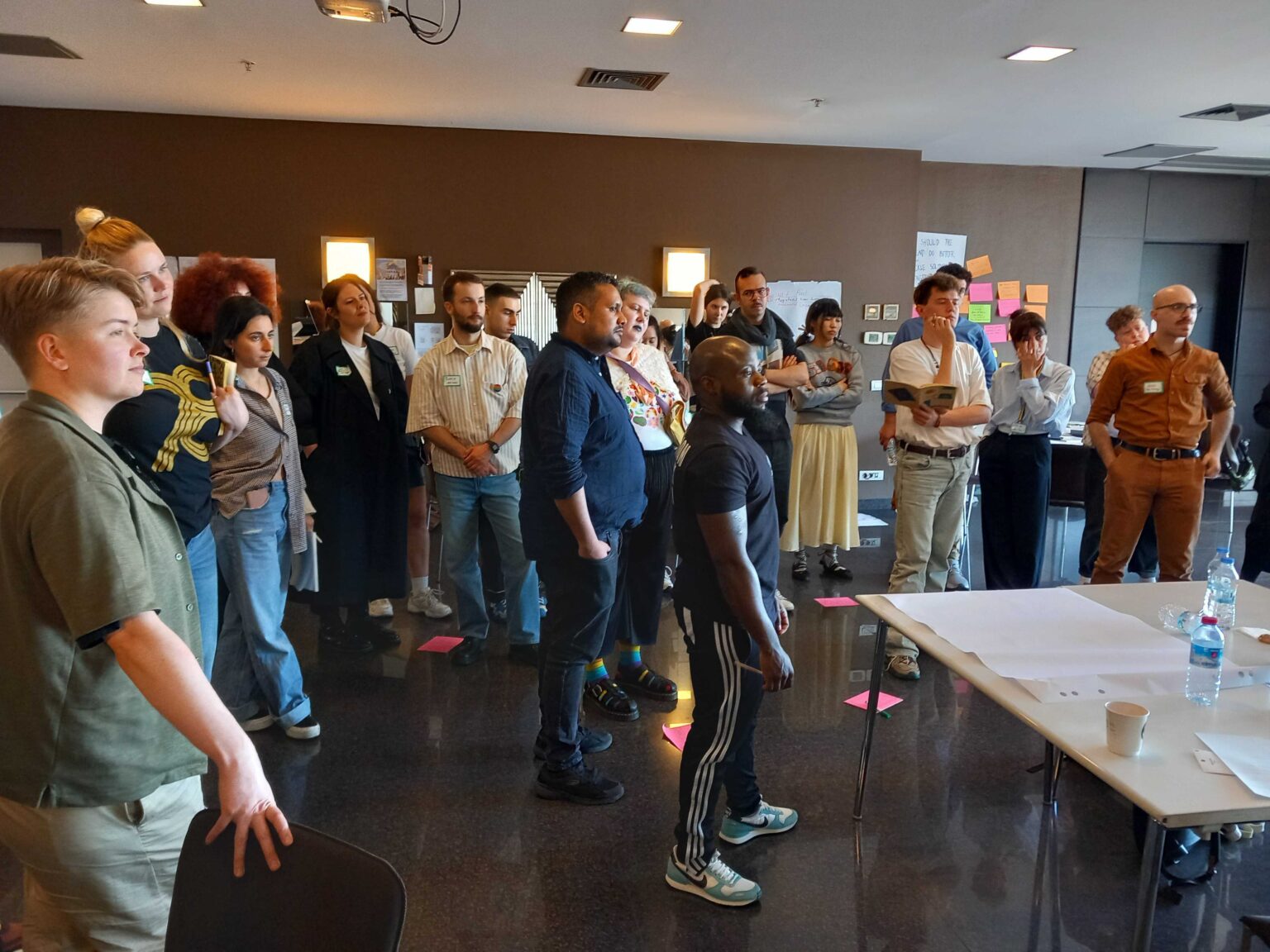
Over the past three years at ILGA-Europe we have been running a number of online Skills Boost sessions for activists who want to improve their communications skills. Recently we held two sessions on how to develop a communications strategy. Here’s what our participants learned.
During our recent online Skills Boost on communications strategies, we asked around 100 participants where they were within the cycle of a comms strategy creation. The majority of them responded with : “Thinking, but not started yet”.
Activists often face an overwhelming workload, and it can be difficult to prioritise something like a communications strategy amidst so many competing demands. Yet, having a strategy is not just another task; it is the foundation that makes all other communications more focused and effective.
Without a strategy, efforts can feel scattered or reactive, diminishing their impact. A good strategy ensures that your messaging reaches the right people, with the right message, at the right time. It is not about doing more but about working smarter and ensuring that your communications actively contribute to your organisation’s goals.
It may seem insurmountable, but it’s easy
Developing a communications strategy can feel like a big task, especially for LGBTI groups navigating limited resources and competing priorities. However, a well-thought-out strategy is more than a document—it is a tool that helps focus your efforts, align your team, and amplify your impact.
The good news is that you do not need a lengthy report or expensive consultancy to begin. What you really need are a few meaningful conversations with your team and a clear sense of where you’re heading. Here is an easy breakdown of the key elements of our Skills Boost to build a communications strategy:
Develop a four-question backbone
At its heart, a good communications strategy is about answering these four questions:
- Why? Why are we communicating? What impact are we aiming for?
- Who? Who do we need to engage, persuade, or mobilise?
- What? What stories, messages, or visuals will resonate?
- Where? Where can we best reach our audience?
These questions form the backbone of any effective strategy. By working through them together as a team, you’ll uncover what really matters and avoid getting caught up in endless, unfocused activity.
Skip the one-size-fits-all approach
Every organisation is unique, and a communications strategy should reflect this. Rather than following a generic template, craft a plan that considers your specific context, priorities, and resources.
Start by identifying what feels most urgent or significant to your team. Perhaps your focus is on strengthening advocacy, connecting more deeply with your community, or shifting public narratives. It is equally important to recognise that you do not have to tackle everything at once. Set priorities, focus on a few clear objectives, and treat your strategy as a living document that evolves with your organisation.
Fill the gaps in your current practices
A communications strategy should simplify your team’s work, not add unnecessary complexity. Think of it as a roadmap: a practical guide that clarifies your direction without overwhelming you with rigid rules.
Start by examining your current practices. What is working well? Where are the gaps? Use these insights to build a framework that streamlines your messaging, focuses your channels, and supports intentional conversations. When done well, a strategy provides clarity and confidence, making your communications more cohesive and impactful.
Begin with small steps
At its core, communications is about connection—and every connection starts with intention. Begin by gathering your team and discussing the four key questions. Even small steps can lead to significant clarity and progress.
If you need further guidance, explore ILGA-Europe’s resources on strategic communications on The Hub, ILGA-Europe’s LGBTI Resource-Sharing Centre, or reach out to us for tailored advice. Together, we can ensure your voice not only reaches the right audiences but makes a lasting impact.
LGBTI rights are human rights
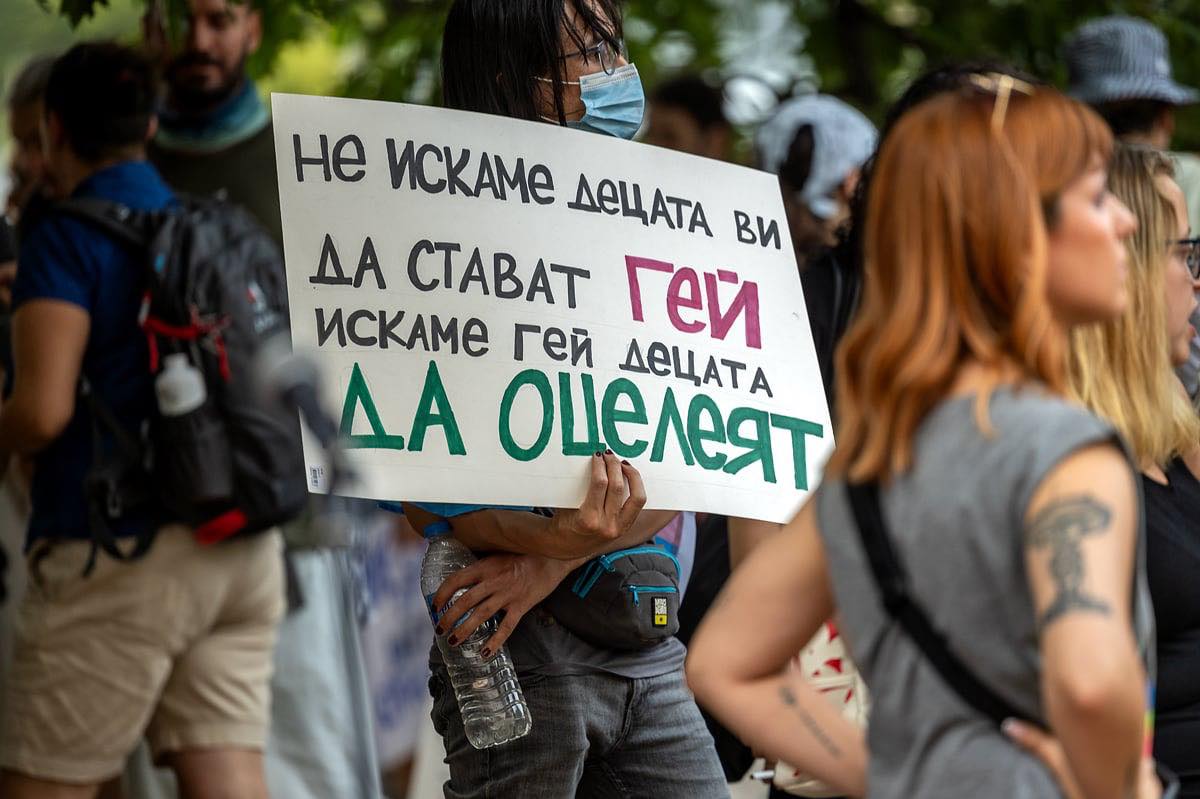
On Human Rights Day we reflect on struggles and milestones for the European and Central Asian LGBTI movement in 2024.
Human Rights Day reminds us of the universality of human rights: freedoms that belong to all people, no matter their identity. This principle is at the heart of the LGBTI movement, as LGBTI rights are human rights. In 2024, these rights were both challenged and celebrated, often reflecting broader societal shifts.
Across Europe and beyond, anti-LGBTI measures highlighted the fragility of hard-won freedoms. Georgia adopted both a “foreign agent” law and an “anti-LGBTI propaganda” law, echoing a troubling global trend of restricting civil society and stifling dissent. On December 2nd, the restrictive law came into force, banning legal gender recognition and equating same-sex relationships with incest, further institutionalising discrimination against LGBTI communities. The law also declared May 17 a holiday opposing the International Day against Homophobia, Transphobia, and Biphobia, amplifying the state’s anti-LGBTI stance. Bulgaria introduced laws targeting the discussion of LGBTI issues in schools, marking another attack on both education and freedom of expression. In Russia, the international LGBTI movement was branded as “extremist” in late 2023, but 2024 saw the first convictions under this extremist label, intensifying the risks for activists and organisations. Kyrgyzstan followed suit by enacting a Russian-style “foreign agents” law in April, subjecting non-profits to extensive state oversight and jeopardising the work of press freedom groups and civil society, including LGBTI organisations.
These developments show how attacks on LGBTI rights often signal deeper human rights violations. In Turkey, trans rights faced severe setbacks with new regulations restricting access to essential hormones, disproportionately affecting trans masculine people and those in poverty. Police repression of LGBTI demonstrations further highlighted the shrinking space for activism and public dissent. The suppression of freedom of speech, association, and democratic principles often accompanies discrimination against LGBTI communities. As such, defending LGBTI rights is part of defending the foundations of democracy and equality for all.
Progress, despite setbacks
Despite these setbacks, 2024 was also a year of hope and progress. Germany’s adoption of a self-determination law marked a major step forward for trans and non-binary people, simplifying legal gender recognition. Greece joined the growing list of European countries recognising equal marriage, while Malta’s introduction of non-binary markers on official documents underscored its commitment to inclusivity.
Beyond Europe, global human rights institutions also made strides for LGBTI people. The UN Human Rights Council adopted a resolution affirming the rights of intersex people, a relevant step in recognising and addressing the unique challenges they face. The European Court of Human Rights ruled that Poland must provide legal recognition for same-sex couples, and the Court of Justice of the European Union declared that Romania must respect gender recognition granted in other countries.
Ensuring no one is left behind
These moments of progress illustrate that advancing LGBTI rights benefits societies as a whole. Laws that affirm equality and dignity strengthen the social fabric, ensuring that no one is left behind. This year’s developments—both the setbacks and the victories—show that progress is possible, but it requires vigilance, solidarity, and collective action.
In February 2025, ILGA-Europe will publish its Annual Review, documenting these and other critical moments from the past year. Stay tuned!
New regulations pose greater risks to trans people in Turkey
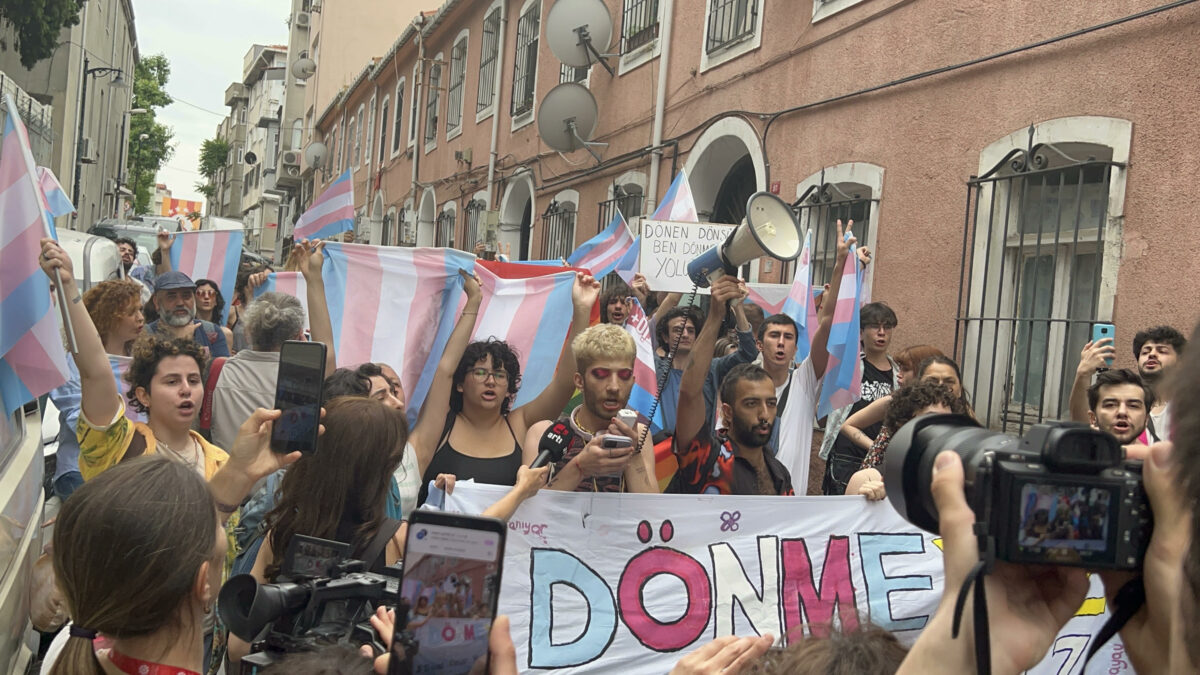
New changes from the Turkish authorities to the accessibility of hormones for trans people further threaten health and lives
On 20 November, the Turkish Medicines and Medical Devices Agency announced a new regulation that requires an e-prescription to access certain hormones used by trans people. The restrictions regulate access to hormones used mainly by trans masculine people as well as hormones used to treat diabetes. The two hormones under this new regulation used by trans women are also the same hormones used by cis women for birth control. This regulation therefore not only impacts trans people but also cis women and people with diabetes.
The new regulation exposes the pre-existing inadequacies in access of trans persons to healthcare services. While the regulation can be seen as an attempt to regularise the process of distribution and use of hormones, making the procurement and treatment safer for users, the Turkish healthcare system is extremely inaccessible for trans people, in particular as regards trans-specific healthcare. As a result, this new regulation will have severe consequences for trans people.
Currently in Turkey university research hospitals are the only hospitals that have specific gender transition councils which assess and provide a medical report for trans persons, which doctors then use to prescribe the necessary hormones. However, these hospitals are only available in 13 of the 81 provinces (usually those with major cities), resulting in those trans people living in rural areas having to travel to one of these 13 provinces. The journey time is usually long, and appointment availability is scarce, making such trips less affordable and accessible. For those who already live in major cities, it is still difficult to access the healthcare system as appointments are rarely available due to high demand – it can take several months to secure a first appointment. Subsequent appointments also have a similar waiting time. In total, it takes a minimum of six months to receive the necessary report for accessing hormone prescriptions. It is time and resource-intensive, and transphobia is often encountered along the way.
Hormones are a key part of trans-specific healthcare for many trans people – they impact not only physical traits but also frequently psychiatric health and wellbeing. For trans persons who have had their gonads removed, hormones are critical for good physical health, as stopping hormone therapy can lead to osteoporosis, among other things.
As a result, this new regulation will have severe negative consequences for the healthcare and mental health of trans people across Turkey, in particular trans masculine people and trans people in poverty. Many trans people will no longer be able to access these hormones, and some will even turn to unregulated pathways to procure them, which can result in health risks and exorbitant prices.
For such a prescription regulation to produce positive effects, the Turkish healthcare system needs to be restructured in such a way as to ensure that trans people can access healthcare in hospitals in all areas of the country. Trans-specific healthcare needs to be more widely provided and understood so that the current high demand can be met, with medical professionals ensuring the right to health of each patient, without discrimination.
More broadly, Turkey should uphold the case law of the European Court of Human Rights on legal gender recognition under Article 8. It should introduce a new legal framework that is quick, transparent and accessible with no requirements for invasive surgeries, and wide access to trans-specific healthcare. It should comply with the World Health Organisation’s 11th revision of the International Classification of Diseases which depathologises trans people in all areas of life.
Recent incidents of limitations on the right to freedom of assembly for LGBTI people in Turkey
On 20 November police blocked a demonstration to commemorate victims of transphobic violence in Ankara on the International Trans Day of Remembrance, and arrested four people, including a member of the Ankara Bar Assocation.
On 23 November police intervened in a demonstration by trans activists in Istanbul against the new e-prescription regulation, detaining 38 people. They were released after providing statements to the police.
On 25 November – The International Day for the Elimination of Violence Against Women – hundreds of people took to the streets in cities across the country, and were met with police repression in many cases. In particular, in Istanbul, the Governor’s Office banned all protests and demonstrations on the specified date, and police interventions resulted in 169 arrests. All of those arrested have since been released, apart from two LGBTI+ people from Azerbaijan, who were taken to repatriation centres. Due to the severe conditions and ill-treatment they were subjected to, including being deprived of food and medications, they were forced to “voluntarily return” to Azerbaijan. One of them was an LGBTI+ human rights defender from Azerbaijan who immigrated to Turkey due to being at risk of arrest in their country.
In Turkey LGBTI+ people are regularly subjected to arbitrary detention (often with excessive police force) and charged for participating in public events, or for holding rainbow flags in the public space. Public demonstrations are frequently banned or postponed under the pretext of “national security”, “public order”, “prevention of crime”, “protection of public health” or “public morals”, with police and governors excessive powers. These practices which include vague limitations on public assemblies allowing for arbitrary interpretation, breach Turkey’s own Constitution (Article 34) and the European Convention on Human Rights (Article 11) to which Turkey is party. Turkey should bring its practices in line with the ECHR and its own Constitution, halting arbitrary banning of protests and detention of participants.
Top European Court holds hearing on Polish refusal to recognise same-sex marriage certificate
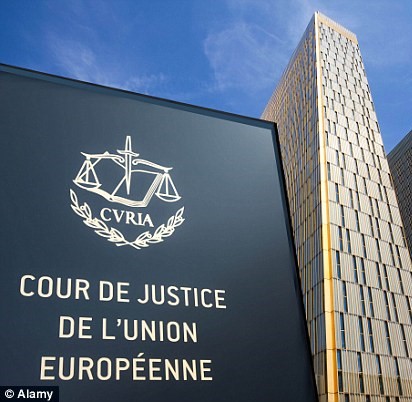
Case could establish critical precedent for the freedom of movement of same-sex couples within the EU
Yesterday, the Court of Justice of the European Union (CJEU) held a hearing in the case of Wojewoda Mazowiecki (C-713/23) concerning the recognition by Polish authorities of a same-sex marriage certificate obtained in another EU Member State.
The hearing follows Poland’s refusal to transcribe into the civil registry a certificate of same-sex marriage contracted in Germany between a Polish citizen and a Polish-German citizen. The couple currently resides in Poland.
The Court is asked whether this refusal conforms with the provisions of the Treaty on the Functioning of the European Union (TFEU) and of Directive 2004/38/EC, which establishes the rights of EU citizens to move and reside freely within the EU, read in conjunction with the European Charter of Fundamental Rights (ECHR), particularly the right to respect for private and family life and the prohibition of discrimination.
The Court is asked to follow the reasoning adopted in the recent judgment in the Mirin case, which confirmed that freedom of movement and other fundamental rights guaranteed under the Charter require authorities to transcribe changes to gender markers and forenames obtained in another EU Member State into their civil registries. By requiring Member States to amend entries in the birth certificates of EU citizens, Mirin ensures that the legal framework for registering and amending citizens’ data is consistent across EU Member States.
This would be a significant step towards the protection of same-sex couples across the EU, especially in light of recent European Court of Human Rights judgments in Przybyszewska and Others v. Poland which found the Polish state in violation of Article 8 (right to respect for private and family life) of the ECHR for failing to provide a specific legal framework recognising and protecting same-sex unions, and in Formela v. Poland which found that Poland breached the same provision for failing to recognise the relationships of two same-sex Polish couples married abroad.
According to Senior Strategic Litigation Officer with ILGA-Europe, Marie-Hélène Ludwig: “A positive ruling in this case would go beyond what the Court found in the Coman and Pancharevo cases and build on the Mirin judgment to recognise that transcription of marriage in civil registries is the only way to effectively ensure freedom of movement of same-sex couples in the EU, notably in countries still deprived of any legal framework recognising their union. This is especially important as marital status – just like one’s gender identity and sexual orientation – is a fundamental aspect of a person’s identity and personal status.”
According to attorneys Pawel Knut and Artur Kula from KMA Law Firm, the lawyers representing the applicants in the case: “The positive outcome of this case of may ensure that the transcription of the foreign marriage certificates of same-sex couples will be finally required from those Member States that still do not provide any form of legal protection for same-sex couples. We believe that this would also strengthen an effective protection for the rights of LGBT families around the EU”.
The Advocate General’s Opinion in this case will be rendered on 3 April 2025.ILGA-Europe is providing support to the applicants and their lawyers in this case.
Answering the call to courage: What happened at the 2024 ILGA-Europe Conference
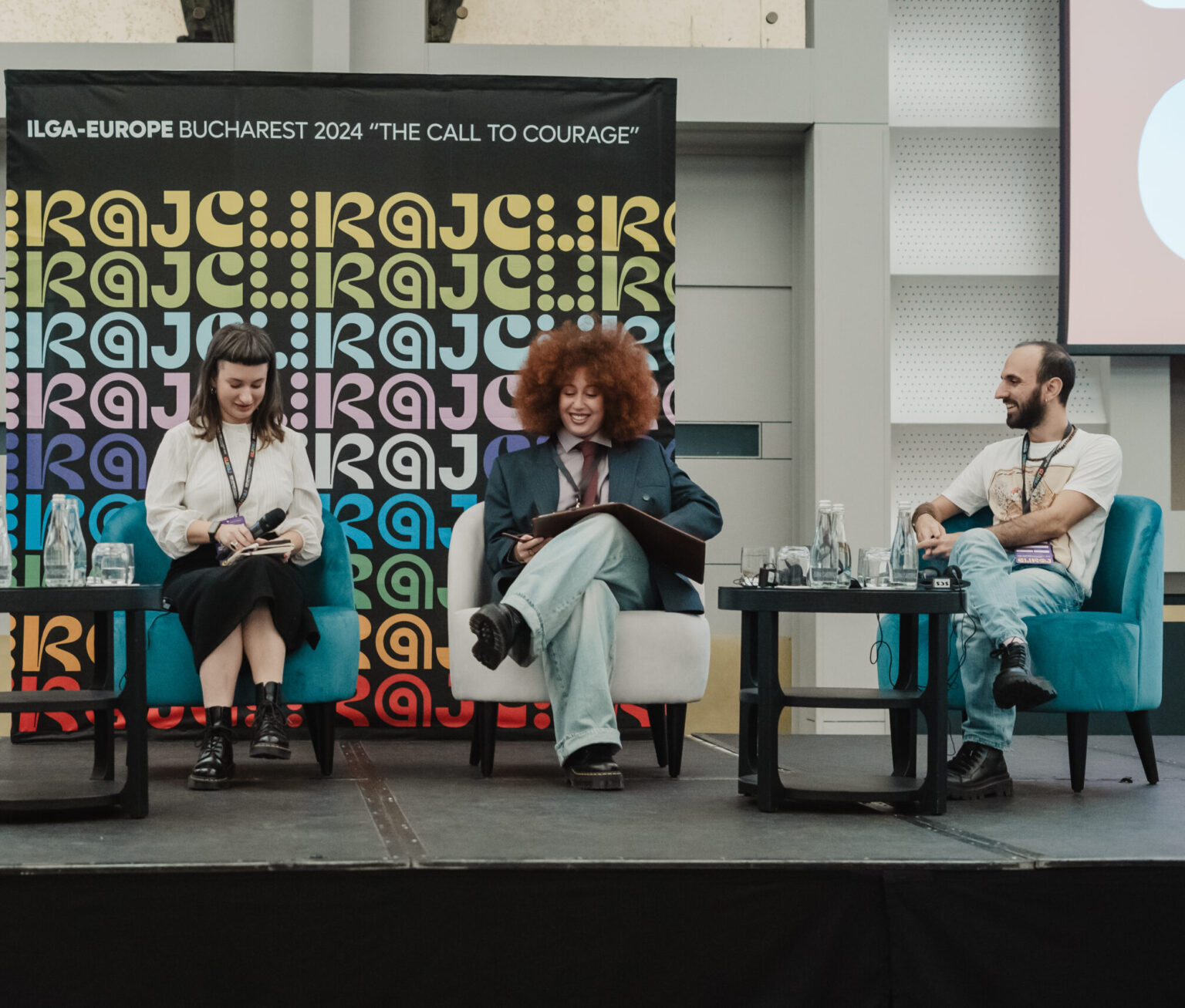
At this year’s ILGA-Europe Annual Conference in Romania, we had three dedicated activist reporters attending sessions across the event, so they could reflect on what was happening right now for the LGBTI movement in Europe and Central Asia. Here is what they found.
The 26th ILGA-Europe Conference, held in Bucharest this October, was a vital meeting ground for activists, leaders, and changemakers from across the LGBTI community, at this particular time in our world. Beyond its extensive sessions and networking opportunities under the theme, The Call to Courage, this year’s event featured the reintroduction of conference reporters—three dedicated activist voices tasked with connecting the threads of reflection, insight, and shared experience throughout the event. These reporters, Rina Rybalko from Ukraine’s Gender Stream, Sarah Arsane of Pride des Banlieues in France, and Andrea Ruggeri from Italy’s Gruppo Trans, shared their expectations, reflections, and key takeaways over the course of the packed three days.
Hope and expectation
Rina approached the conference with hope, acknowledging the uncertainties facing activists but focusing on the potential for solutions. “Since this is my second time at the conference, I know that we will talk about challenges a lot,” she shared. “And I hope that in these discussions we will find together decisions and solutions that we will bring back home to our communities.” This outlook was a testament to the resilience that Ukrainian activists have shown, especially amidst Russia’s ongoing full-scale invasion and its impact on LGBTI communities.
As the conference began, Sarah expressed excitement at the rare opportunity to connect with likeminded people. “I’m really looking forward to meeting LGBTQ+ activists from all over the world and hearing the unique stories and struggles,” she said. Her anticipation highlighted the conference’s role as a space for exchange, learning, and mutual empowerment.
Andrea, acknowledging both the gravity of their work and the community’s strength, spoke with poignant honesty. “Yesterday was not a good day for my country,” they remarked, referring to a newly passed law in Italy that criminalises seeking surrogacy abroad, a move that threatens LGBTI families and sets a concerning precedent. This difficult reality highlighted their hope to find emotional and political support while drawing strength from shared experiences.
Reflections during the conference
As the conference unfolded, each reporter shared insights into their evolving experiences. For Sarah, moments of connection stood out. Reflecting on the importance of unity and exploring vulnerabilities to promote growth, she said, “I particularly enjoyed the discussions on the various issues facing our communities. Being a Muslim woman, a racialised lesbian, and from working-class neighbourhoods, this particularly moved me.”
Rina was moved by the power of collective communication. “The highlight for me was communication—panel discussions, workshops, and networking, which was meaningful, fruitful, and sometimes challenging,” she noted. This understanding emphasised the importance of shared spaces where LGBTI voices can overcome barriers, address urgent needs, and build alliances.
Andrea’s reflections captured the diverse and layered nature of the Conference. “In one room, people are getting pragmatic by discussing how to tackle disinformation campaigns; in another, others are sharing how resilience keeps them grounded,” they observed. This collection of experiences showed how different strategies and discussions come together to strengthen our shared determination.
Courage as a takeaway
As the conference drew to a close, the atmosphere was charged with renewed determination. Rina spoke of courage as a verb: “It means to act, even when we are in a state of maximum uncertainty, for your own sake, for the sake of others.” She left the conference inspired by the dedication of fellow activists and motivated by the focus on meaningful change.
Sarah, in her closing words, summed up the spirit of solidarity at the Conference and within the movement. “What I take away is the strength of our community and the power of alliance… even in difficult times, we are stronger together,” she affirmed. Her speech served as a reminder that collective resilience, empathy, and unity are vital for progress.
Andrea concluded by highlighting a lesson learned year after year: “Queer people are taking care of themselves and teaching others how to take care of their communities.” This ongoing truth showed the depth of support and self-sustainability within the LGBTI movement, despite outside challenges.
A unified future
The conference reporters’ voices were a strong reminder that, while activists in our LGBTI movement may come from different contexts, the shared fight for dignity, safety, and rights binds them together. As they return to their home countries from this year’s Conference—whether grappling with legislative struggles, seeking innovative advocacy strategies, or rebuilding communities torn by war—they carry with them the shared knowledge, strength, and hope forged in Bucharest.
The ILGA-Europe Annual Conference 2024 in Pictures
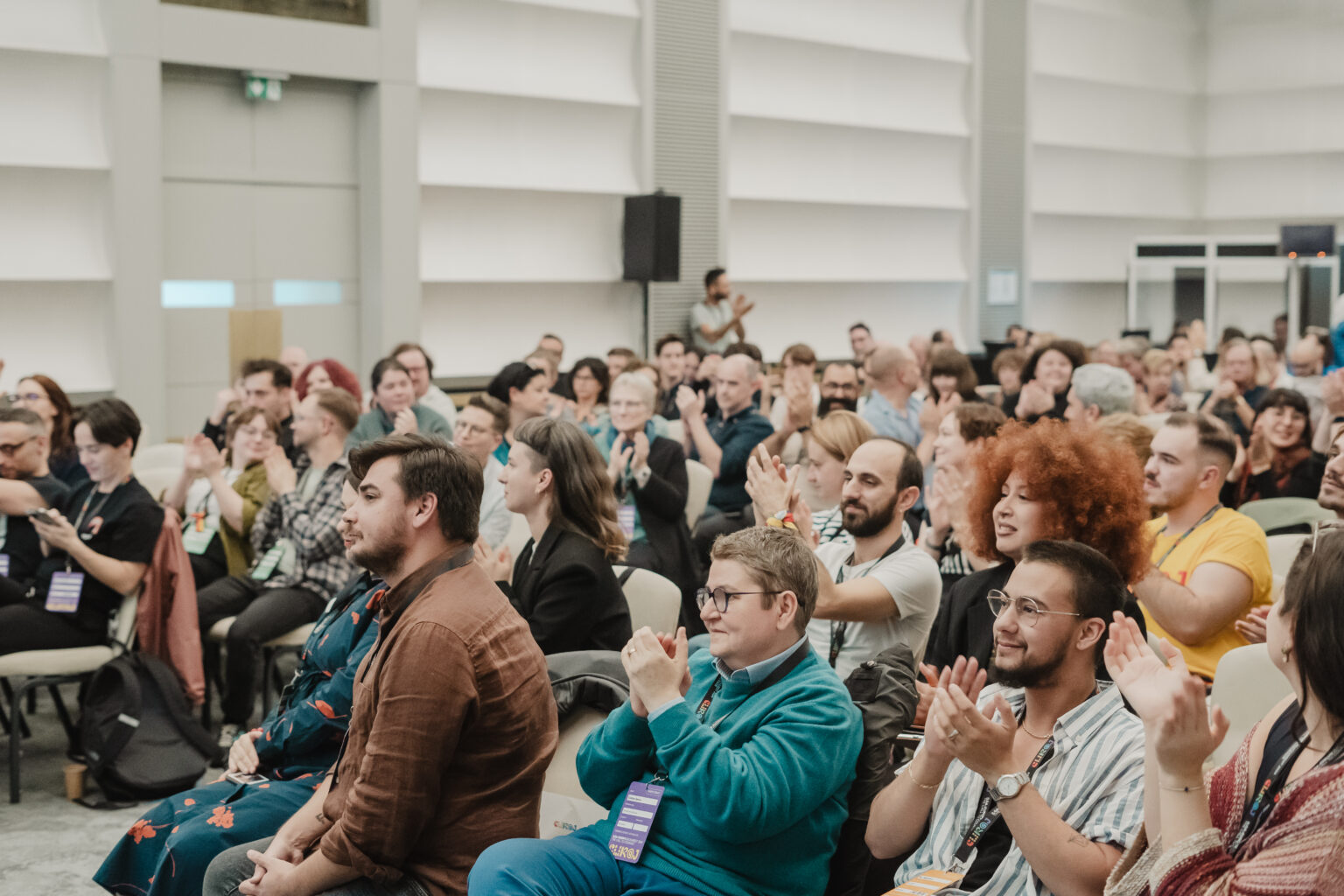
For four days in Bucharest, our photographer was there to capture every memorable moment of this year’s Annual Conference. Here are the highlights!
This October, we came together in Bucharest with over 400 LGBTI activists and allies from across Europe and Central Asia for ILGA-Europe’s Annual Conference. And what a journey it was! Four inspiring days filled with connection, sharing, strategising, and bolstering resilience for the challenges that lie ahead, all within an atmosphere of support and mutual empowerment. This year’s theme, The Call to Courage, rang through each panel, workshop, and conversation as we tackled pressing issues and explored new ways forward. And, of course, there were moments of celebration too, including a night Karaoke and a closing celebration with drag performances paired with local DJs.
Our heartfelt thanks go to our wonderful hosts, ACCEPT and MozaiQ, and to our talented photographer Larisa Balta, who captured the spirit of the conference. Here, we share a snapshot of those unforgettable days!
For a much larger selection of photos, be sure to check out our albums on Facebook.
The ILGA-Europe conference, the largest LGBTI conference in Europe and Central Asia, meets in Bucharest this weekend
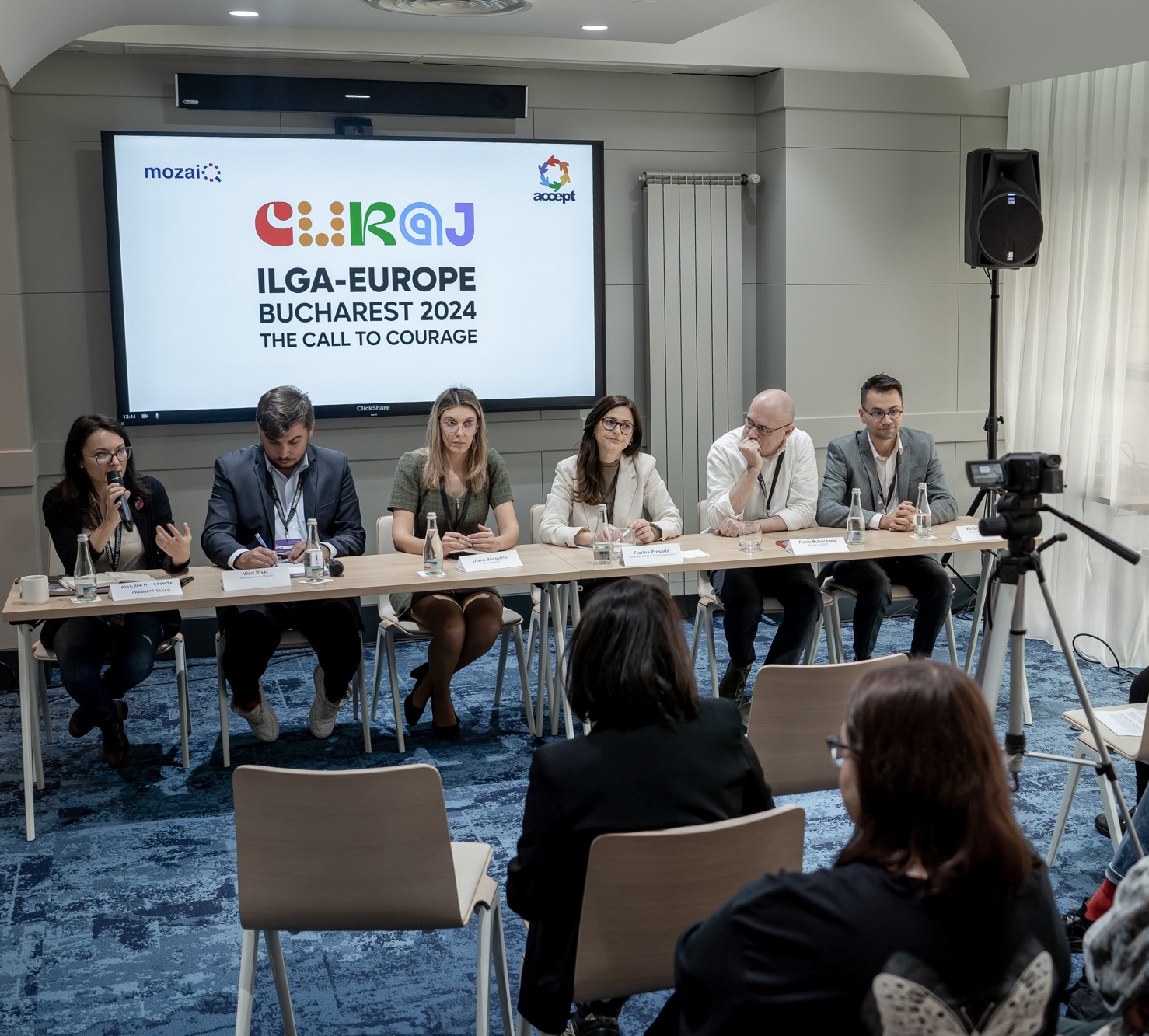
The ILGA-Europe Annual Conference, the largest LGBTI conference of its kind in Europe, has brought over 400 LGBTI activists from across Europe and Central Asia to Bucharest.
Co-organised by ILGA-Europe member organisations from Romania, Accept and MozaiQ Associations, the theme of this year’s Annual Conference is ‘The Call to Courage’, reflecting the need for constant and fearless engagement in the movement for LGBTI human rights and equality. The event aims to address issues facing the LGBTI community in Europe, so that international activists can exchange experiences and discuss topics important to the movement at a European level. It also represents a crucial opportunity to strengthen solidarity and collaboration among LGBTI organisations in the region, in the context of the rise of conservative and populist movements in several European countries.
Commenting on the choice to hold the Conference in Romania this year, ILGA-Europe’s Advocacy Director, Katrin Hugendubel said: “As Romania gears up for elections, and at a time when the rights, protections and lives of LGBTI people are more at risk now than in the last decade, we are in Bucharest for the ILGA-Europe conference over with 400 LGBTI activist participants, from 52 countries. The European Courts have made two judgements saying Romania should recognise both same-sex partnerships and gender recognition that have taken place in another EU country. It is time that Romania caught up with the majority of the European Union and implemented these judgements. Romania also needs to put in place legislation to recognise partnerships and rainbow families, so that the human rights of LGBTI people can be respected and protected, instead of being used as political scapegoats with attempted legislations to limit their human rights.”
Failures in Romania
Judgements against Romania’s at the European Court of Human Rights (ECHR) and the Court of Justice of the European Union (CJEU) are among the topics addressed during the Conference, including the need to recognise same-sex families, as well as the protection of the rights of the transgender community. These topics underline both the failures of the Romanian government in protecting fundamental rights and the urgency with which these rights violations must be remedied. These challenges are amplified by an increasingly polarised political climate, where hate speech and attempts to limit minority rights are on the rise.
In addition, the conference is being held at an essential moment for Romania, given that this year is an election year. The November-December parliamentary and presidential elections will test Romanian politicians’ commitment to democratic values and respect for fundamental rights. At a time when repressive anti-LGBTI legislation from the Russian playbook is being promoted in neighbouring countries, Romania must reaffirm its commitment to the protection of all its citizens.
According to Victor Ciobotaru, Executive Director of the Accept Association Romania: “LGBTI people have never asked for special rights. We want equal rights for ourselves and our families. Politicians have probably never done this exercise of compassion of putting themselves in the other person’s shoes, in the shoes of the person you represent, to think about what it’s like to live for 25 years with someone and not have the certainty that you can be with that person in difficult moments, such as if they have health problems, if an accident occurs, or if the other person dies. These are the pressures and fears we live with every day. Every day that goes by waiting for politicians to respect our rights, is a day when real people suffer.”
Vlad Viski, the Executive Director of MozaiQ added: “We have to put a mirror in front of the political class regarding LGBTI people in Romania. There are hateful political attitudes, which are still acceptable in the Romanian Parliament and now Romania is in the situation where it is one of the last five countries in the EU that does not recognise same-sex couples, while there are judgements on partnership rights and legal gender recognition from the EU courts that are yet to be implemented.”
According to Renate Weber, Ombudsperson for Romania: “The first thing we need, and this would be a major step forward, is a civil partnership law that applies to everyone, both same-sex couples and heterosexual couples, in a non-discriminatory manner. We need this if we want people to come to terms with change.”
Political candidates for the forthcoming Romanian parliamentary elections who attended the press conference also gave comments:
“The LGBTI community does not benefit from any kind of regulation of their rights in relation to state institutions. This is discrimination. Failure to regulate social situations invites discourses that incite discrimination, exclusion and even hatred,” said Andreea Leonte, candidate on the lists of the REPER party in the parliamentary elections.
“Politicians lack courage, but they are also ignorant,” said Diana Buzoianu, USR deputy and USR parliamentary candidate. “Not seeing the injustice in front of you is a form of huge ignorance. The biggest obstacle is their mentality, that no matter what they do, no one will hold them accountable. Those in parliament are ultra-privileged.”
“There is a need for commitment, courage and solidarity,” added Florina Presada, former Executive Director of Accept and candidate on the lists of the SENS Movement for parliament. “LGBTI people need more than civil partnership, they need more than half measures. The full right is civil marriage and everything that derives from it is needed. This means protecting the family in Romania. Let’s stop operating with half measures.
“Only through joint efforts can we build a society where every individual, regardless of their sexual orientation or gender identity, feels respected and protected. It takes courage not to let hatred and discrimination become the norm, and activists from across Europe and Central Asia gathered here are a voice of solidarity and resistance against injustice.”
ACCEPT – Strength in solidarity and a call for change
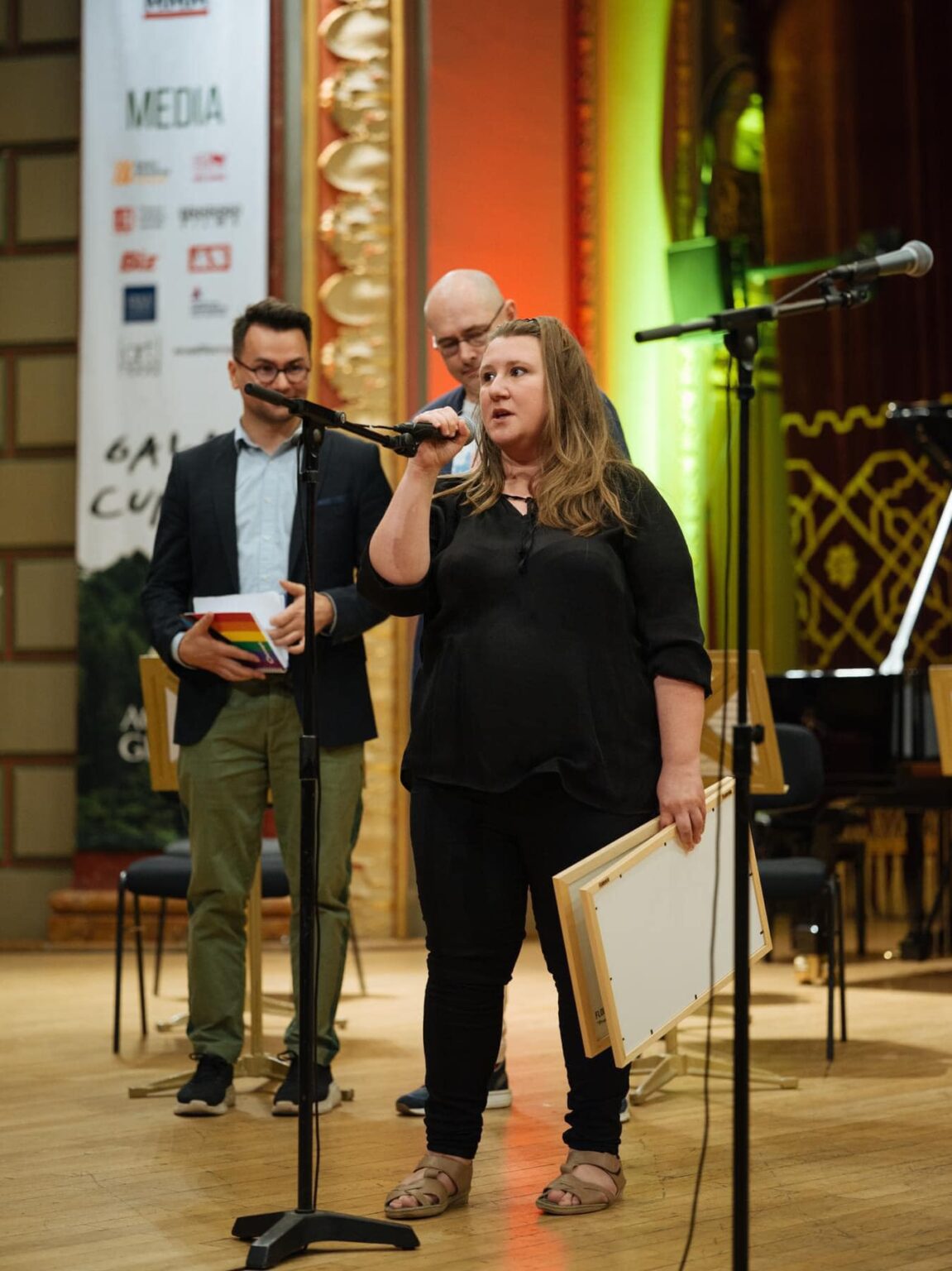
The Romanian LGBTI organisation, ACCEPT plays an important role in co-hosting the ILGA-Europe conference this year. Co-president Teo Ion-Rotaru shares her insights into what the Conference represents for the organisation and the LGBTI community in Romania, in light of the current political climate.
Hi Teo. Can you tell us what hosting the ILGA-Europe Annual Conference means for ACCEPT?
ACCEPT has been part of the European LGBTI movement for almost 30 years. Even though some faces have changed — staff, board members, and activists — our focus remains the same: growing and consolidating the movement. Hosting this conference offers a unique opportunity to contribute to the broader European movement, especially at a time when it is so needed.
It is a chance to bring together young and seasoned activists alike, offering a space where we can collectively reflect on our successes and challenges. My own first ILGA-Europe conference reinforced my belief in the power of community. Seeing others who had been through similar struggles, sharing strategies and support, was a powerful reminder that we are not alone.
What does this event mean in a wider political context for the LGBTI movement in Romania?
The political environment in Romania is tense, with Presidential and Parliamentary elections around the corner. The rights of LGBTI people are increasingly important for Europe, and Romanian politicians are aware that the eyes of Europe are on them.
We hope that this event will serve as a platform to amplify the voices of Romania’s LGBTI community, not just within our own country but across Europe. Hosting this conference sends a clear message: you cannot demand support from Europe while turning a blind eye to the rights denied to your own citizens.
Our fight is intersectional—it’s not just about LGBTI rights, but about democracy, the rule of law, and the well-being of all minorities in Romania. This conference will shine a spotlight on these struggles and push us towards greater equality.